
Boston College announces a new Ph.D. program in Computer Science
We're excited to share the news that Boston College has launched a new Ph.D. program in Computer Science (CS).
The CS department's faculty includes leading experts in their fields, with an emphasis on the theory of computation and algorithmic fairness, machine learning, and data science and visualization, including applications to health, the sciences, language, and society. The Ph.D. program will provide a vehicle for us to train the next generation of computer scientists at the research frontier in these fields, with contributions to human knowledge and social good both prime considerations.
We welcome applications from qualified candidates.

Boston College Students Successfully Present Their Work at IEEE AIIoT 2025
Boston College Computer Science students Bo Jiang, Jiaheng Li, and Zhi Xu presented their work at the IEEE World AI IoT Congress, May 28-30, 2025 in Seattle, Washington. The conference provided an opportunity for researchers, educators and students to discuss and exchange ideas on issues, trends, and developments in the related fields of Artificial Intelligence (AI) and the Internet of Things (IoT).
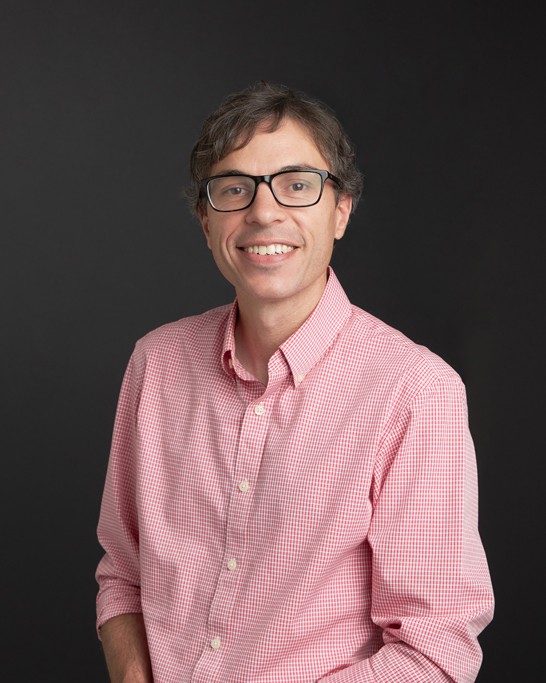
Using statistical and deep learning methods to study how crime is influenced by location and time
George Mohler, chairperson of the computer science department at Boston College, was featured in The Trace describing how statistical and deep learning methods can be used to study how crime is influenced by location and time. —The Trace, "tracing gun violence in America" [Full story]
Grace Pascarella Presents at ACM Student Research Competition at SIGCSE
Grace Pascarella (MCAS '25) presented "Extending a concept inventory - Covering CS0 - CS2 Topics" at the ACM Student Research Competition at SIGCSE. Pascarella co-authored the poster with Computer Science Department Associate Professor of the Practice Maíra Marques Samary.
"Students entering Computer Science (CS) programs are arriving at college with a varying knowledge of coding and CS. The rigid structure suggested to all, does not fit everybody. But finding the correct starting course in CS at college level is not simple, since students may not understand that CS is not only coding. The failure of a good selection on where to start the CS program can be a hindrance to students, since they may perceive that CS is not for them because it appears to be too hard, or they may perceive it as too easy and lose their interest. The General Concept Inventory for Introductory Computer Science (GCSCI) was created to tackle this problem, it can be roughly divided in two parts. In previous research authors have presented the validation of the first part, that can assess concepts that are usually taught in CS0 and CS1. This work presents the second part of GCSCI, the topics covered and its validity assessment. This part of the assessment contains 42 questions that assess topics from object orientation to data structures and sorting. All students doing CS2 in Fall 2023 were invited to participate, from the 42 questions being evaluated; 20 had a good coverage and were validated in terms of discrimination and difficulty level."

Joshua Gorniak Received an Honorable Mention for the CRA Outstanding Undergraduate Researcher Award
Joshua Gorniak, one of our outstanding undergraduate students, received an Honorable Mention in the highly competitive CRA Outstanding Undergraduate Researcher Awards program for 2024-2025. Organized by the Computing Research Association (CRA), this program celebrates undergraduate students across North American colleges and universities (e.g., the US, Canada, Mexico) who demonstrate exceptional research potential in the field of computing.
The program places a strong emphasis on research excellence while also considering academic achievements and service contributions such as leadership, teaching, and peer mentoring. Joshua’s recognition as an Honorable Mention highlights his remarkable contributions to computing research, his dedication to advancing the field, and the department's commitment to fostering cutting-edge research and academic excellence.
Congratulations to Joshua on this prestigious recognition and for representing Boston College at a national level!
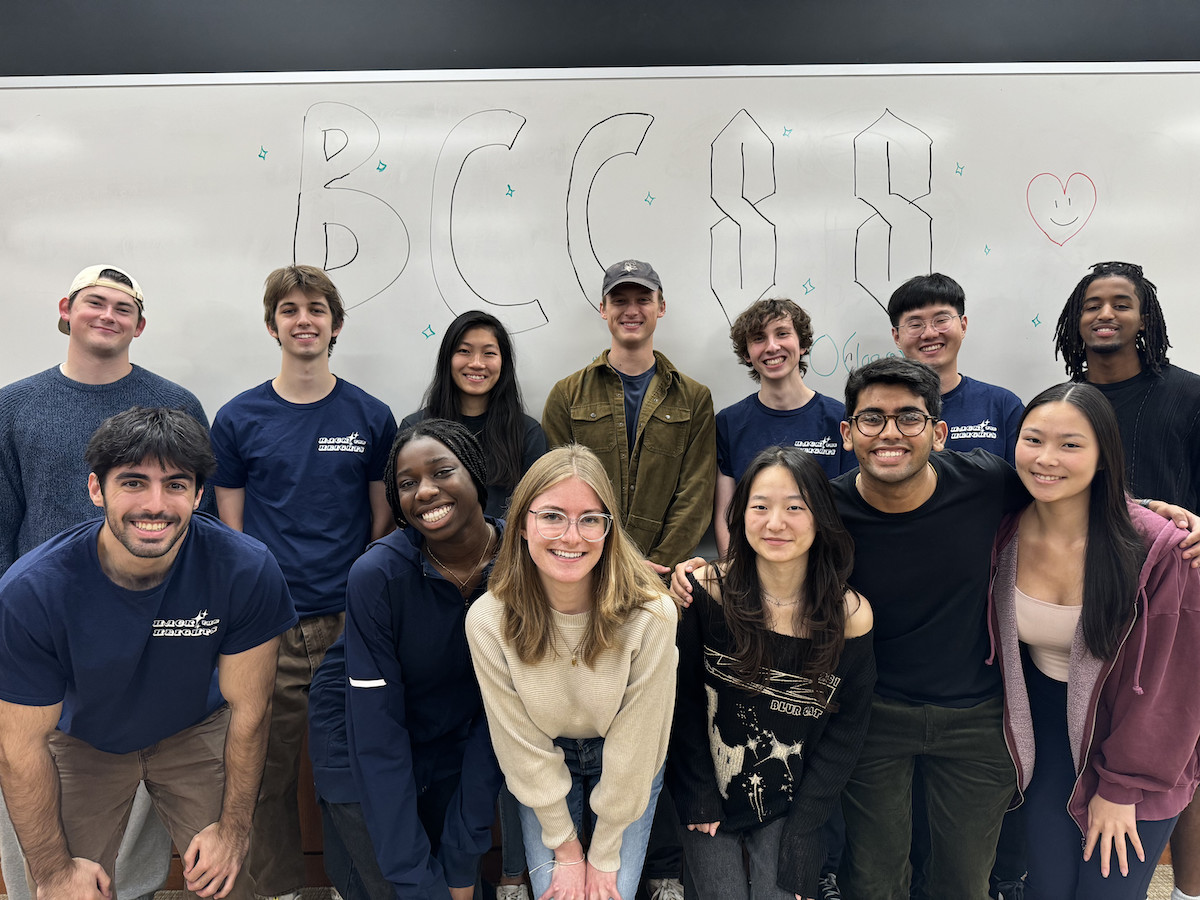
BC "Paradise Begins Here" Hackathon a Huge Success
BCCSS successfully hosted Hack the Heights 9 at 245 Beacon Street this weekend. Over 40 students across 12 teams competed in the 24-hour hackathon themed "Paradise Begins Here," focusing on small community changes for global impact.
The event featured a speaker panel with Boston College alums Will and Talia, now software engineers at Amazon and Redhat, respectively, and Google’s senior software engineer Adam Winchell. Additionally, BC's Machine Intelligence Group (MIG) held a natural language processing workshop.
Key sponsors included Cambridge Mobile Telematics and Dell. Eugene Shih, VP of Engineering at CMT, shared insights on their mission and interacted with students, distributing exciting goodies. Dell’s campus ambassadors also engaged attendees with a raffle. On the final day, students showcased their projects, with "Study Buddies"—a service tracking real-time classroom availability for BC students—winning the top prize from over $1,500 awarded. Thanks to Professors Samary and Creiner and Mr. Samary for judging.
Heartfelt thanks to all participants, sponsors, and mentors for a fantastic weekend!
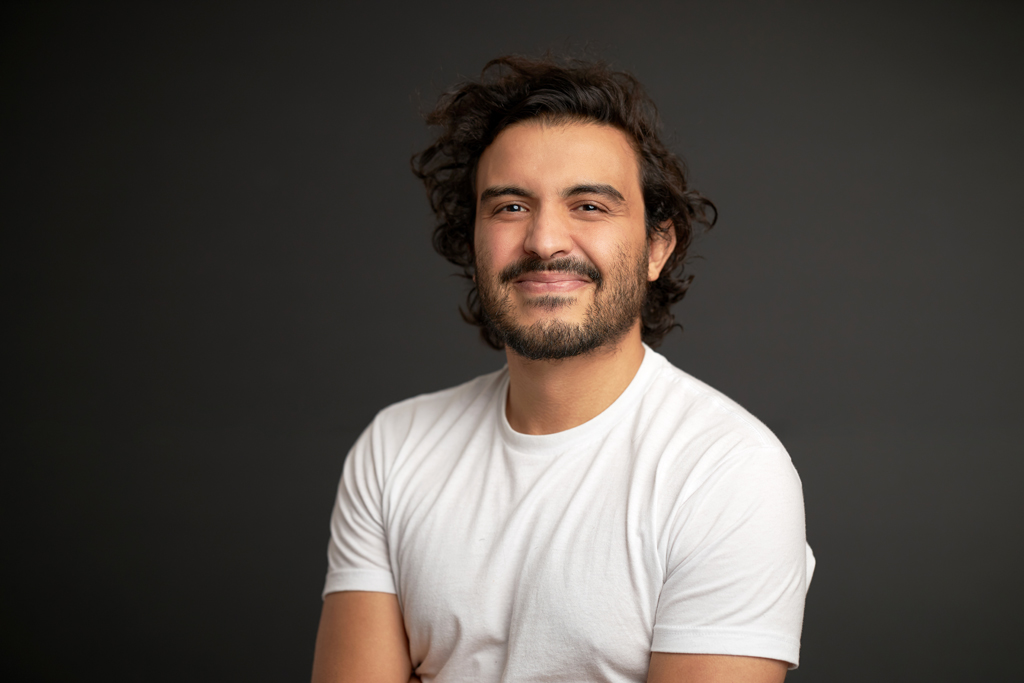
Youness Diouane and Colleagues' Paper Named DSAA2024 "Best Paper"
A paper co-authored by Boston College Postdoctoral Researcher Youness Diouane entitled “Accurate estimation of cross-excitation in multivariate Hawkes process models of infectious diseases” was chosen for the Best Paper Award for the DSAA2024 Research Track.
The best paper selection committee noted that “… the paper addresses the important subject of infectious disease modeling on the example of Covid-19 transmission data. The focus is on modeling the spatio-temporal transmission of infectious diseases in terms of a Hawkes process. Granger causality for inference is encoded in the kernel function of the multivariate Hawkes process. The problem is that of false cross-excitation, i.e. overestimating someone from NYC infecting another one in LA. Seven methods of estimating the Granger causality are inspected through three experiments, the last being real-world Covid-19 data from four counties in California. The comprehensive comparison in the paper provides a clear understanding of the strengths and weaknesses of each method, offering valuable guidance for researchers and practitioners in selecting appropriate techniques for their models.”
Congratulations to Youness and his colleagues for this recognition.
The 11th IEEE International Conference on Data Science and Advanced Analytics (DSAA 2024) will be held in San Diego, California on October 6-10, 2024.
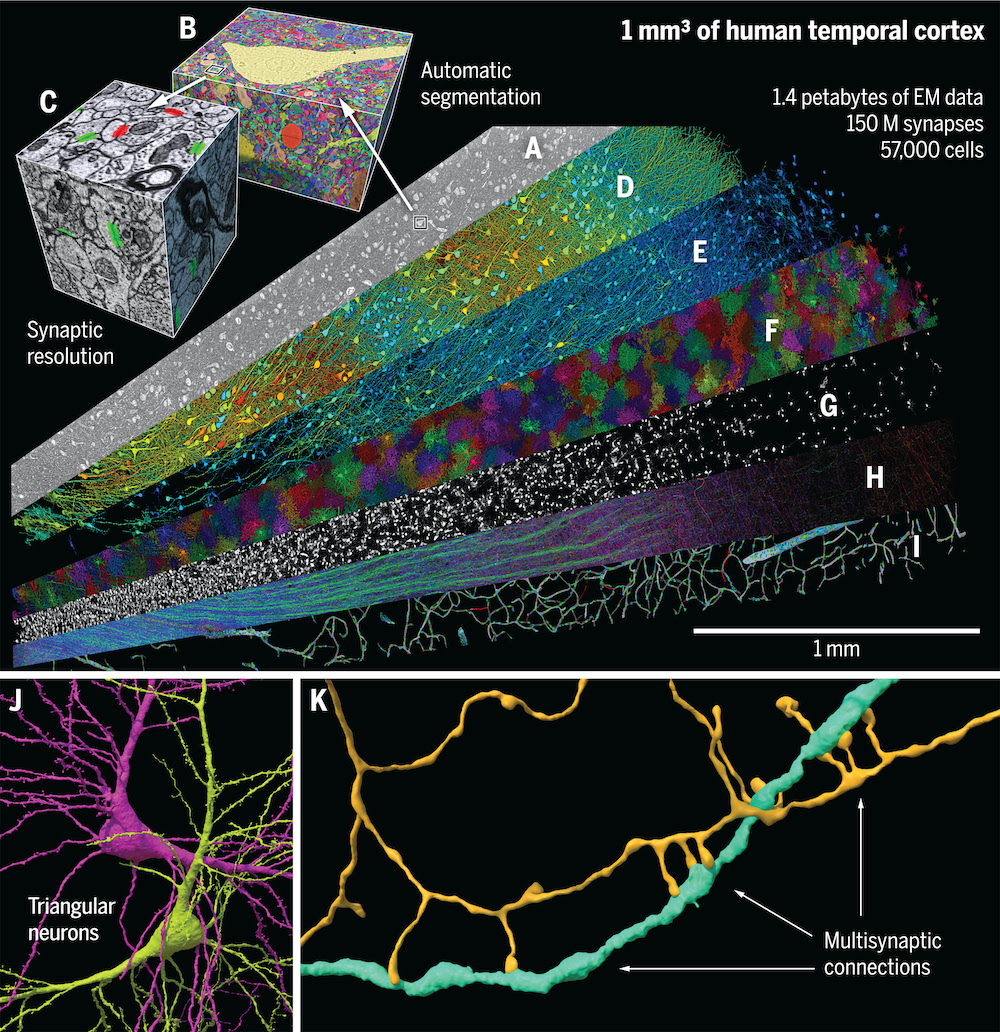
Donglai Wei Co-Authors Research Article: "A petavoxel fragment of human cerebral cortex reconstructed at nanoscale resolution"
Boston College Computer Science Department Assistant Professor Donglai Wei and his colleagues recently co-authored a neuroscience paper published in Science, the peer-reviewed academic journal of the American Association for the Advancement of Science, entitled "A petavoxel fragment of human cerebral cortex reconstructed at nanoscale resolution."
Editor's summary: "A complete understanding of the human brain begins with elucidation of its structural properties at a subcellular level. To provide a valuable resource for the scientific community and to better understand the structure of the human temporal cortex, Shapson-Coe et al. performed an electron microscopy reconstruction of a cubic millimeter of human temporal cortex. The authors produced 1.4 petabytes of electron microscopy data; classified and quantified cell types, vessels and synapses; and developed a freely available tool for analyzing these data. Their findings allowed the authors to identify previously unknown aspects of the human temporal cortex."
Paper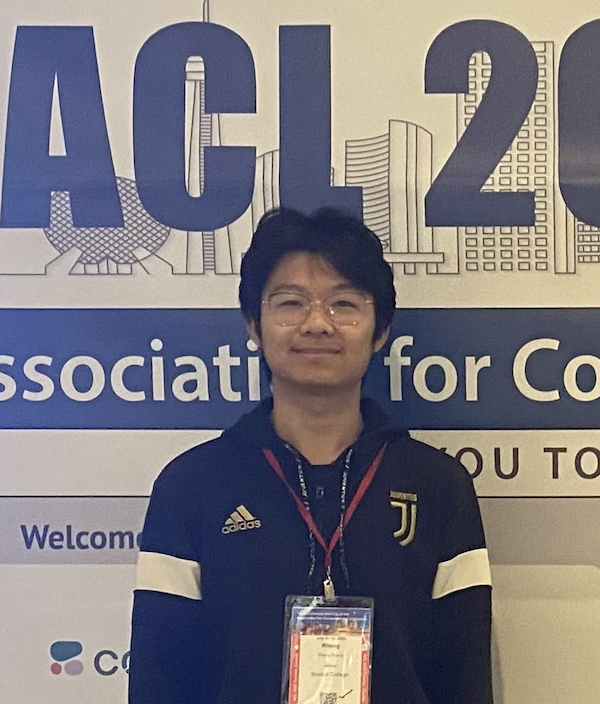
Gavin (Riteng) Zhang Awarded Scholar of the College
Kudos are in order to Gavin (Riteng) Zhang, Scholar of the College, awarded at the Scholars Banquet and recognized at the Commencement Awards Ceremony. This designation is given to exceptional students who have excelled academically in their undergraduate studies and who have done substantial, independent work of the highest quality for a significant part of their senior year under the supervision of faculty scholars.
Gavin is also the recipient of a McCarthy Prize, awarded at the Scholars Banquet and recognized at the Commencement Awards Ceremony. The McCarthy Prize is given for what is judged by dean’s reviewers as the best scholars’ project in the areas of the Natural Sciences, the Social Sciences and the Humanities. The program is administered by the Morrissey College of Arts and Sciences Dean’s Office.
Gavin is also the co-receipt of the Computer Science Department's 2024 Neuhauser Award.
Gavin Zhang is majoring in Mathematics and Computer Science, and minoring in Philosophy, with research interests in Deep Learning Interpretability, Neural Architecture Search, and various other areas of AI. His three years of research experience has been under the advisement of Professors Emily Prud'hommeaux, Sergio Alvarez, and Maira Samary. Gavin has worked as a Teaching Assistant for Professor Sergio Alvarez's Machine Learning course for one year and served as a TA for one semester in Professor Yuan's Deep Learning course.
In addition, Gavin Zhang is the CAIO and co-founder of Blossoms AI with several other students from BC, an ed-tech startup.
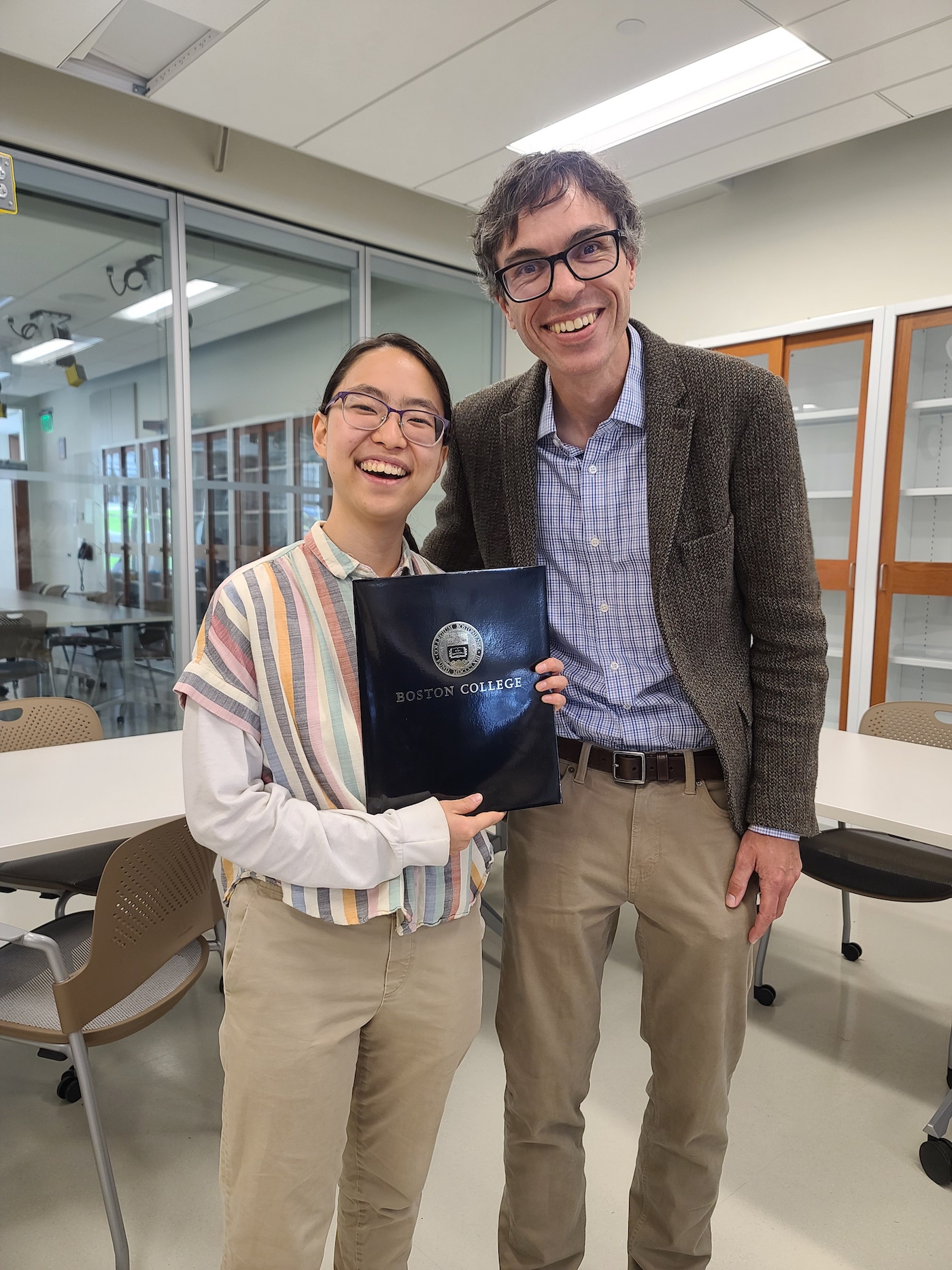
2024 Neuhauser Awards
Boston College Computer Science undergraduate students Joanne Lee and Gavin (Riteng) Zheng were honored as co-recipients of the 2024 Neuhauser Award at a reception on May 3, 2024.
Shown here (L-R): Joanne Lee and the Daniel J. Fitzgerald Professor and CS Department Chairperson George Mohler

Sophia Brady Awarded Fulbright Scholarship
Sophia Brady '24 has been awarded a Fulbright Scholarship to conduct research in Melbourne, Australia. Her research is concerned with leveraging machine learning to improve the precision with which clothing is sorted at second-hand clothing centers.
"Over 10 months, I will be working closely with both the Royal Melbourne Institute of Technology’s School of Fashion and the School of Artificial Intelligence. With their guidance, I will train a neural network that will help volunteers sort clothing based on quality and style, using analytics from previous sales. I aim to improve clothing recirculation and encourage engagement with second-hand fashion," Brady writes.
She adds, "I look forward to exploring Melbourne, and taking in the beauty of Australia."
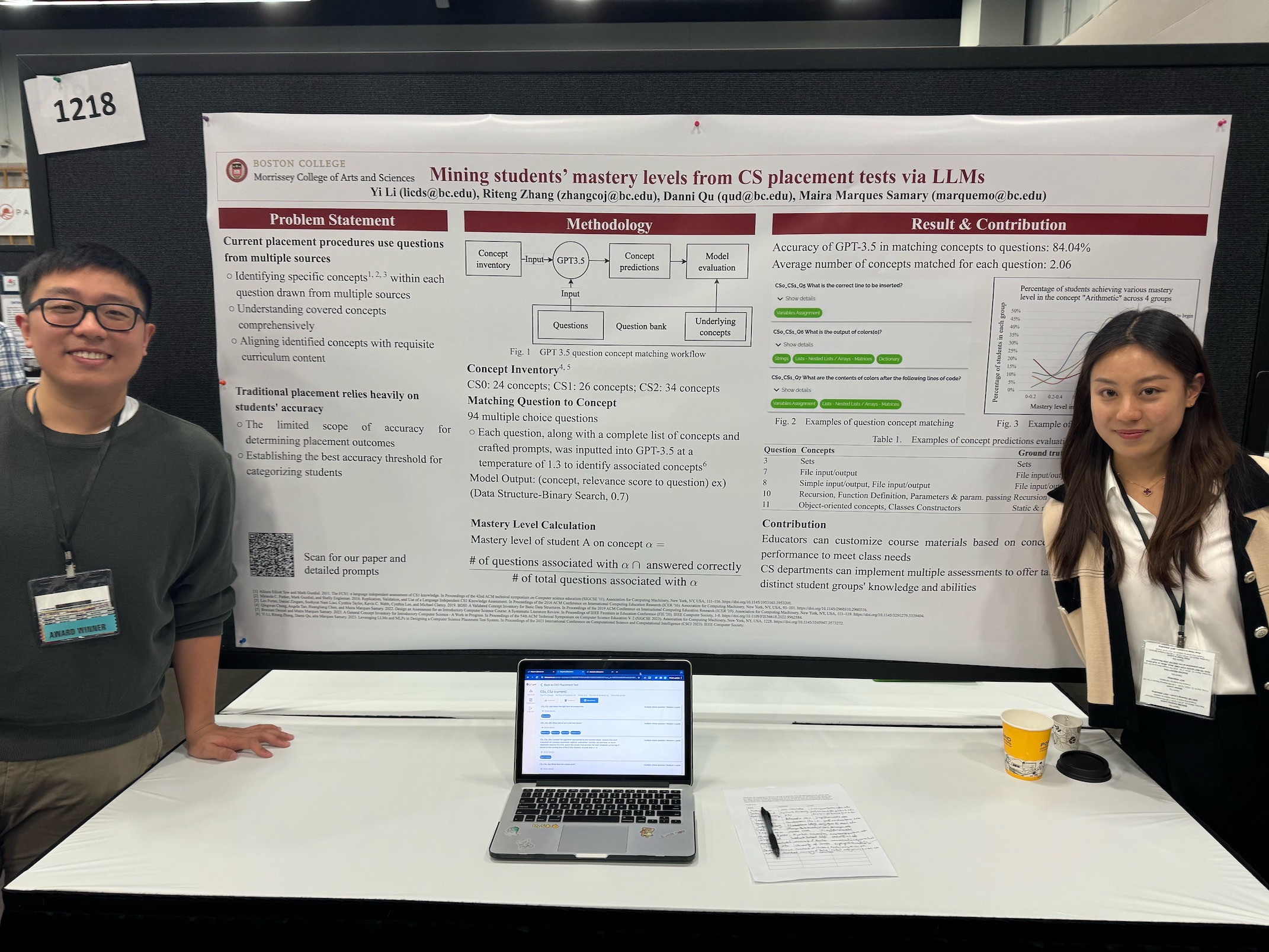
BC Students Present at Undergraduate ACM Student Research Competition
Yi Li and Danni Qu attended SIGCSE (Computer Science Education Technical Symposium) in Portland, Oregon March 20-23, 2024 to present the work done by Yi Li, Riteng Zhang, Danni Qu (all CS seniors) and Prof. Maira Samary. Their work is being presented at the Undergraduate ACM Student Research Competition.
Abstract: In higher education, introductory Computer Science (CS) programs offer a range of foundational courses. These encompass not only the standard CS1 and CS2 courses but may also include more specialized options like CS0 and CS1.5. In order to appropriately assign students to the suitable introductory courses, many institutions utilize placement tests, which assess students’ pre-existing knowledge and skills. While most institutions rely on accuracy alone to make these determinations, there is often additional information concealed within the completed tests. This paper delves into the potential of Large Language Models (LLMs) to uncover this hidden information, particularly in gaining insights into how students perform in different concepts. Moreover, our framework has the flexibility to accommodate variations in curricula across different institutions, providing additional analytical perspectives. Initially, we built a concept inventory (CI) using the concepts covered in an institution’s CS0, CS1, and CS2 curricula. Next, an LLM, specifically GPT 3.5, was applied to associate each question in the placement test with one or more concepts in the CI. Finally, the results of the placement tests were scrutinized, allowing the calculation of mastery levels in each concept for individual students. These mastery levels enable institutions to gauge a student’s prior knowledge across various concepts simply by using a CS placement test. Additionally, we presented a case study demonstrating the application of this framework to 267 existing placement test results at Boston College.
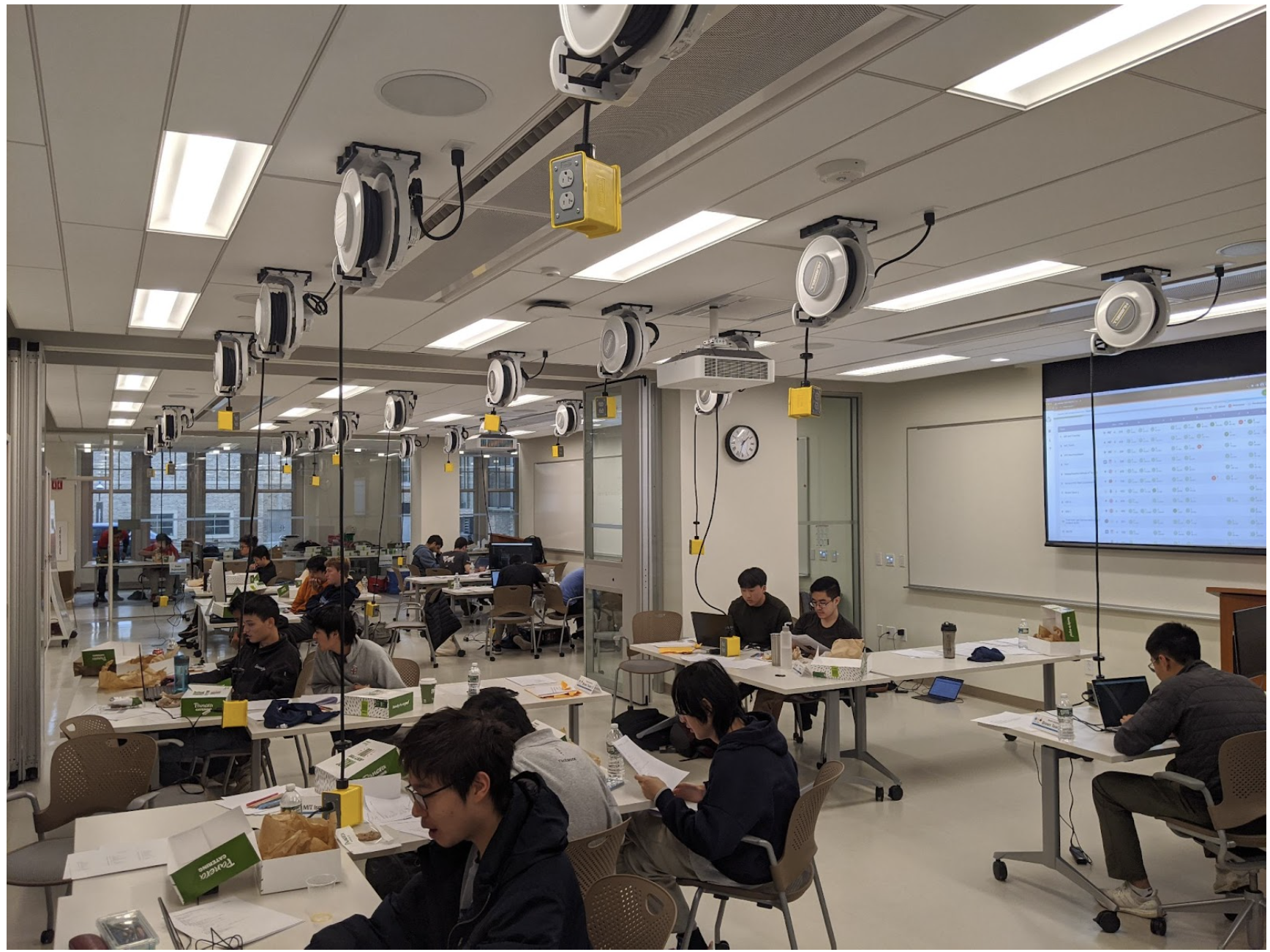
Boston College Hosts a Site of International Collegiate Programming Contest, Northeast North America Regional Contest
The International Collegiate Programming Contest (ICPC) stands as a formidable challenge for college students, requiring teams of three to tackle a plethora of algorithmic challenges within a tight five-hour window. This fosters skills in collaboration, creativity, innovation, and performing under pressure. Regarded as the oldest, largest, and most prestigious programming competition globally, the ICPC is a true test of programming prowess.
This year, Boston College hosted the ICPC Northeast North America (NENA) Regional Contest on Sunday, October 29, 2023. Across eight hosting sites, a total of 84 teams participated, representing seven northeastern U.S. states and six Canadian provinces. Out of the 84 teams, only three advanced to the next level, the North America Championship. Twelve teams participated in the regional contest at Boston College: three teams from MIT, 5 teams from Brown University, three teams from Boston College, and one team from Stonehill College. The contest ran smoothly. One of the MIT teams won the contest by solving the entire set of 12 problems within 4 hours, 8 minutes.
The leading Boston College team solved five problems in total (they almost got the 6th problem), ranked at the 23rd place overall and seventh site-wise (just a little behind three teams from MIT and three teams from Brown University). The other two teams performed admirably, solving three and two problems respectively. MIT, Harvard, and the University of Rochester clinched the top spots in the NENA competition. Each of them will send a team to the North America Championship (NAC) in 2024.
Fall 2023 CS Seminar Series
The list of presenters for the Boston College Computer Science 2023 Fall Seminars series has been announced. The event organizers include George Mohler, Jia Wan, and Nikhil Gupta.
Shang-En Huang will present "Cactus Representations in Polylogarithmic Max-flow via Maximal Isolating Mincuts" on October 13, 2023 at 3 PM in the Computer Science Conference Room in 245 Beacon Street Room 326.
Abstract:
A cactus representation of a graph, introduced by Dinitz et al. in 1976, is an edge sparsifier of O(n) size that exactly captures all global minimum cuts of the graph. It is a central combinatorial object that has been a key ingredient in almost all algorithms for the connectivity augmentation problems and for maintaining minimum cuts under edge insertions (e.g. [Naor et al. SICOMP'97], [Cen et al. SODA'22], [Henzinger ICALP'95]). This sparsifier was generalized to Steiner cactus for a vertex set T, which can be seen as a vertex sparsifier of O(|T|) size that captures all partitions of T corresponding to a T-Steiner minimum cut, and also hypercactus, an analogous concept in hypergraphs. These generalizations further extend the applications of cactus to the Steiner and hypergraph settings.
In this talk, I will introduce the cactus representation, the Steiner-cactus and hypergraph-cactus problem, and I will illustrate how our algorithms construct both Steiner cactus and hypercactus using polylogarithmic calls to max flow. These are the first almost-linear time algorithms of both problems. The constructions immediately imply almost-linear-time connectivity augmentation algorithms in the Steiner and hypergraph settings, as well as speed up the incremental algorithm for maintaining minimum cuts in hypergraphs by a factor of n.
The key technique behind our result is a novel variant of the influential isolating mincut technique [Li and Panigrahi FOCS'20, Abboud et al. STOC'21] which we called “maximal isolating mincuts”. This technique makes the isolating mincuts to be “more balanced” which, we believe, will likely be useful in future applications.
This talk is based on a joint work with Zhongtian He and Thatchaphol Saranurak.

Joshua Gorniak ’26 to Present Research Poster at ACM UIST'23
Sophomore CS major and Gabelli Presidential Scholar, Joshua Gorniak (MCAS ’26), has authored a research poster on data visualization accessibility in collaboration with Jake Ottiger '25, another Gabelli scholar, and Profs. Donglai Wei and Nam Wook Kim. The poster, titled “VizAbility: Multimodal Accessible Data Visualization with Keyboard Navigation and Conversational Interaction,” will be presented at the esteemed ACM UIST'23 conference. The VizAbility system employs an LLM-based pipeline that seamlessly integrates data, chart structures, user locality, and web-based information to deliver comprehensive answers. Joshua is currently working on publishing a full paper based on these preliminary findings.

George Mohler Appointed Chair of Computer Science Department
George Mohler has been appointed the new chairperson of the Department of Computer Science at Boston College. Mohler is the Daniel J. Fitzgerald Professor of Computer Science. Professor Mohler earned his B.S. at Indiana University – Bloomington, and his Ph.D. at the University of California – Santa Barbara. He replaces Sergio Alvarez who is stepping down after serving in the chair role for several years.
"I am honored to be the next chair of the Computer Science Department and I look forward to serving during this transformational moment. It is an exciting time for the department, as we continue to grow our faculty, educational programs, and research profile in alignment with the university's mission and strategic plan."
Professor Mohler’s research interests include statistical and deep learning approaches to solving problems in spatial, urban and network data science.
BC to Offer New Minor in Data Science
Boston College will launch a new minor in data science this fall that—reflecting the University’s Jesuit, Catholic liberal arts tradition—emphasizes human-centered applications of data analysis and modeling for the common good.
More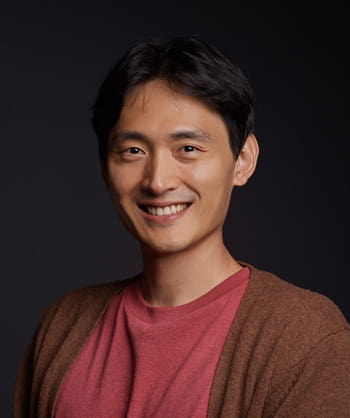
Nam Wook Kim Awarded a $350K Collaborative NSF Grant
BC Computer Science faculty member Nam Wook Kim (lead), in collaboration with UW-Madison, has been awarded a $350K grant from the National Science Foundation's (NSF) Division of Information & Intelligent Systems (IIS) for his proposal "Bridging Research and Visualization Design Practice via a Sustainable Knowledge Platform."
The award abstract and further details are available from NSF at the link below:
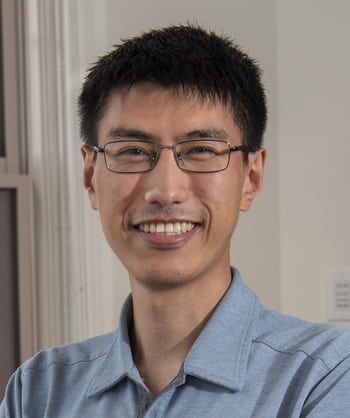
Donglai Wei Awarded $600K NSF CAREER Grant
BC Computer Science faculty member Donglai Wei has been awarded a $600K Faculty Early Career Development Program (CAREER) research grant from the National Science Foundation's (NSF) Division of Information & Intelligent Systems (IIS), for his proposal "CAREER: Scaling up Brain Circuit Reconstruction with Human-centric Machine Learning". The award abstract and further details are available from NSF at the link below:
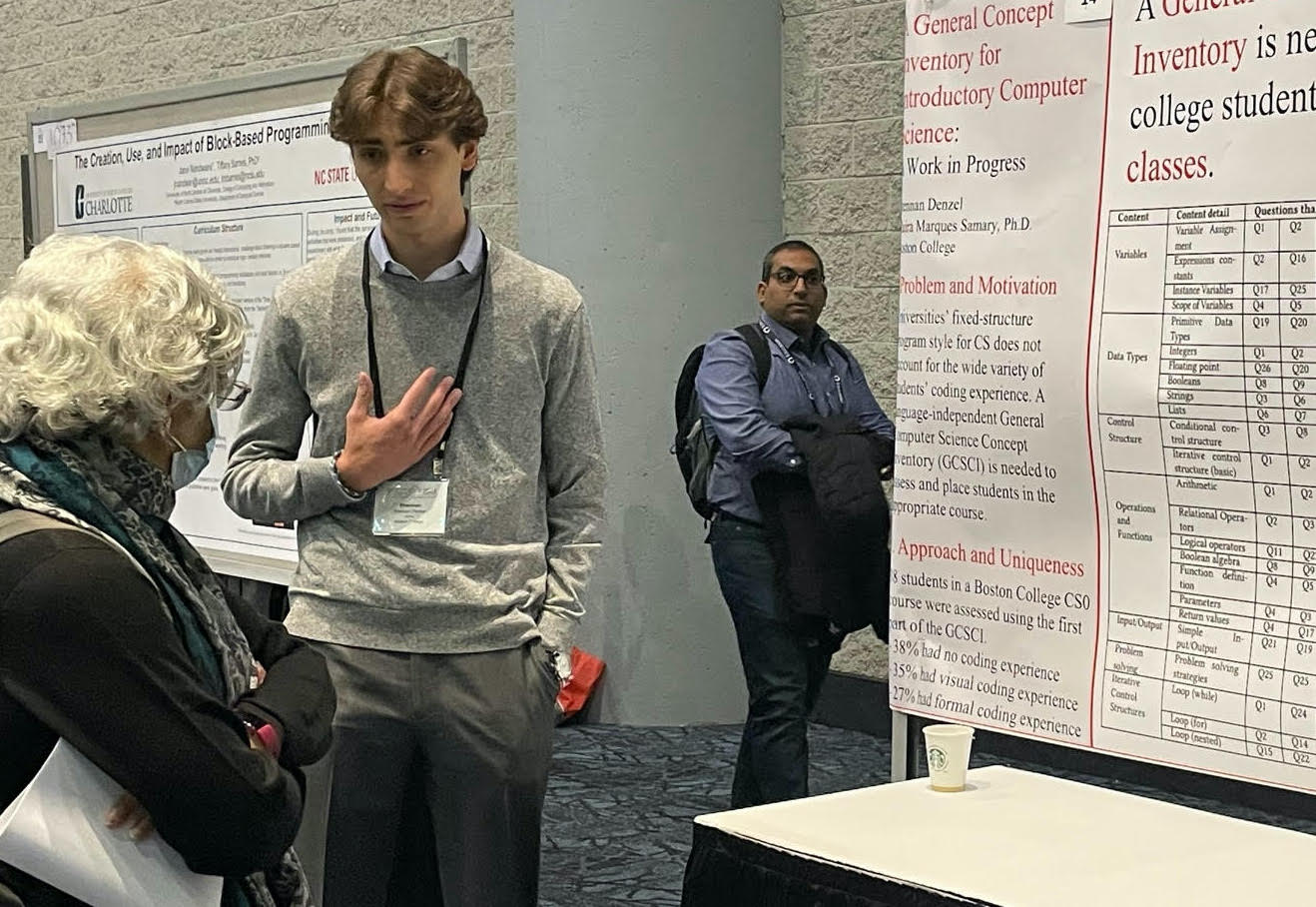
Brennan Denzel '23 Places 2nd in ACM SIGCSE Student Competition
Boston College Computer Science major Brennan Denzel '23 was awarded second place for his poster in the ACM SIGCSE Student Competition, March 15-18, 2023 in Toronto, Canada. His poster was titled, A General Concept Inventory for Introductory Computer Science - A Work in Progress. The work was co-authored by department faculty member Maira Samary.
The ACM Student Research Competition (SRC) offers a unique forum for undergraduate and graduate students to present their original research at well-known ACM sponsored and co-sponsored conferences before a panel of judges and attendees.

BC Students Participate in International Collegiate Programming Contest
The International Collegiate Programming Contest (ICPC) is a programming competition for college students. Teams of three students each solve over a dozen algorithmic challenges within five hours, fostering collaboration, creativity, innovation, and the ability to perform under pressure. The ICPC is recognized as the oldest, largest, and perhaps the most prestigious programming competition in the world.
Boston College has not participated in ICPC in a half decade. The last time Boston College competed was in 2017.
This year, four teams from Boston College competed in the North American Qualifier (NAQ) in early February. Three teams were then selected to compete in the Northeast North America Regional Contest (NENA) at College of the Holy Cross site on 25th February, 2023. There are seven hosting sites for the contest with a total of 85 teams from seven northeastern states of the United States and six provinces of Canada.
The top Boston College team ranked 3rd place at College of the Holy Cross site and 25th place in the Northeast North America Region. Our other two teams ranked 5th and 7th site-wise and 33rd and 43rd regional-wise. MIT, Harvard, McGill, and Brown are the winners of NENA. Each of them will send a team to compete in the North America Championship (NAC), which is going to be held in Orlando, Florida in May 2023.
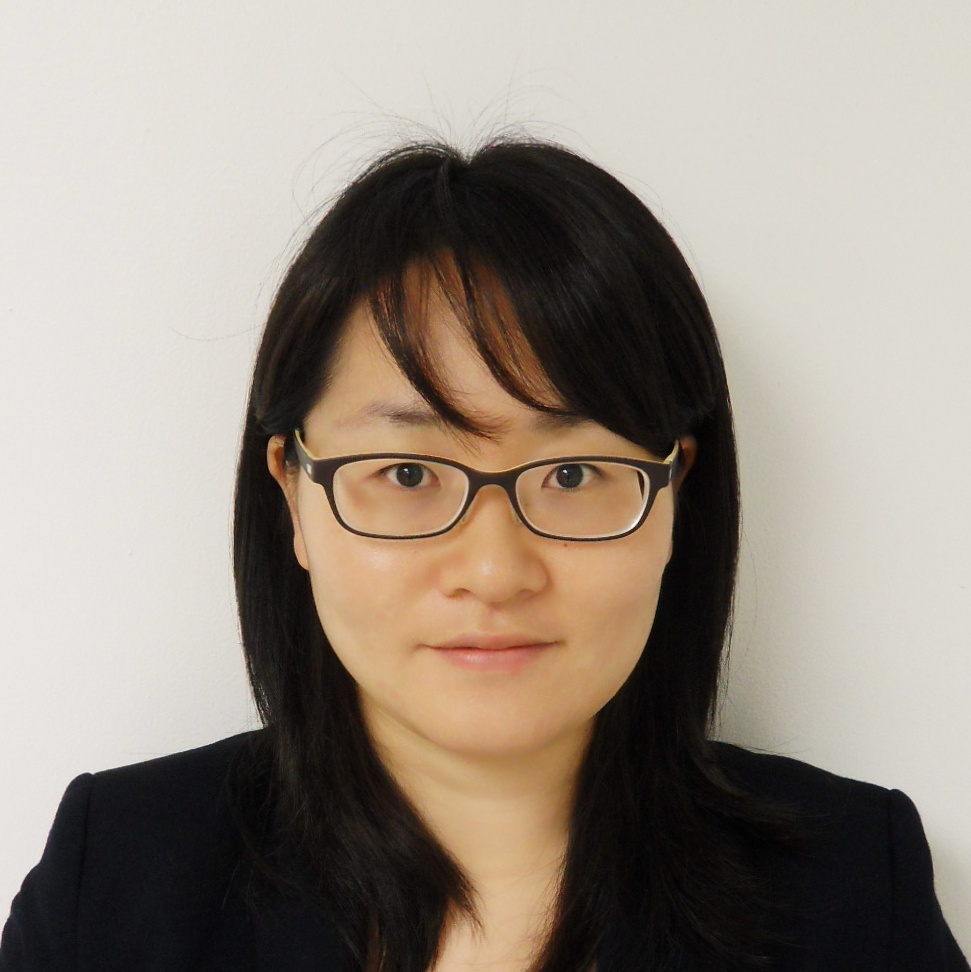
New Faculty Member: Mira Yun
Mira Yun joins the department as a Visiting Professor of the Practice. Her research interests are in wireless networks and in computer science education. During the spring of 2023, Prof. Yun will be teaching courses in Computer Systems and in Wireless and Mobile Networks.
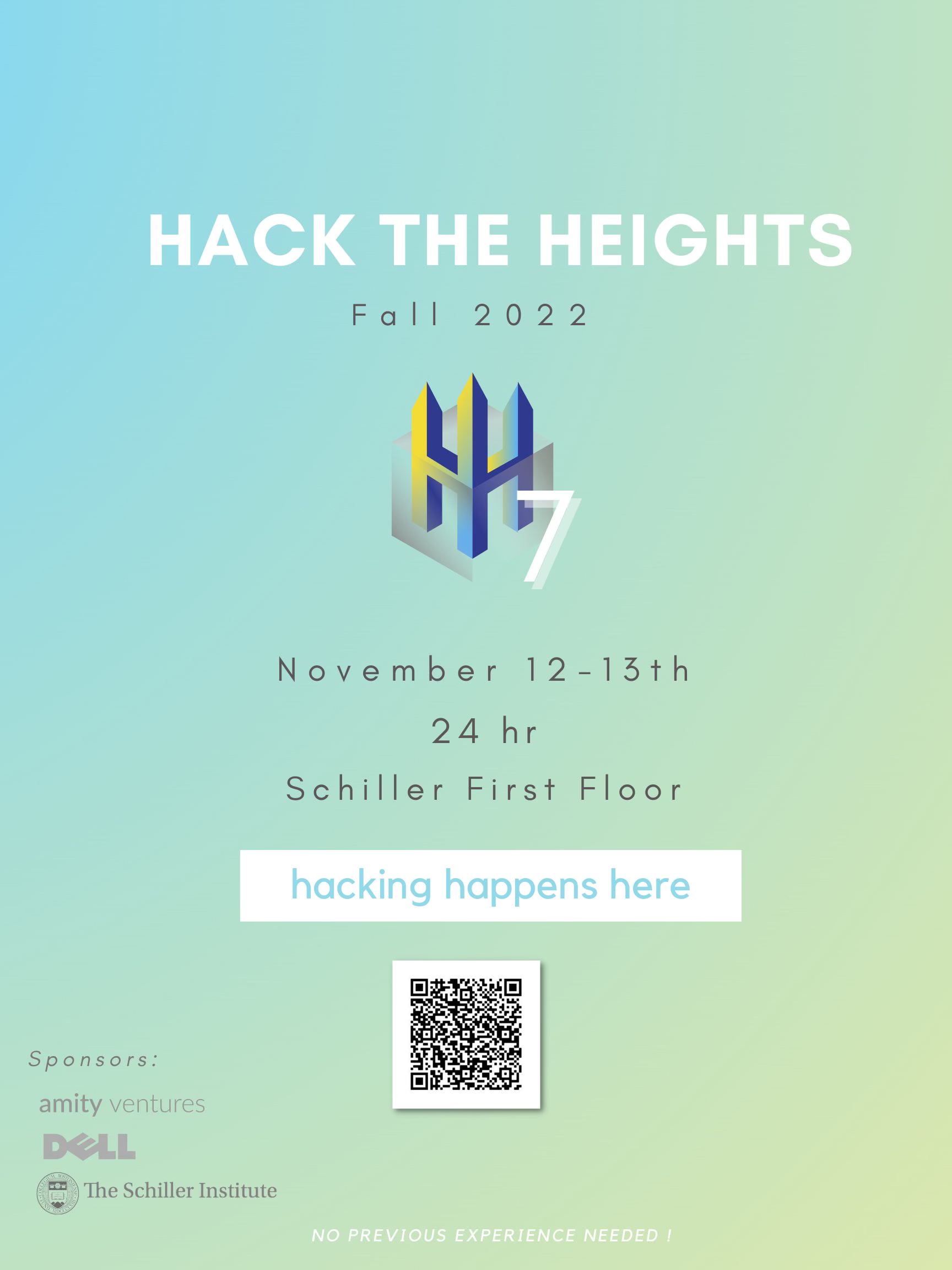
Boston College "Hack The Heights" Held on November 12-13, 2022
The student-run Hack the Heights hackathon will be held on November 12-13, 2022. Previous Hack The Heights have taken place in Stokes Hall; this year's event is being held in the home of the Computer Science Department, the new Integrated Sciences building, 245 Beacon Street, on the 1st floor. The group plans to host around 40-50 students for a 24-hour period who will work on programming-related projects.
The hackathon is open to all Boston College students regardless of computer science knowledge. The organizers encourage students from other fields to come participate and compete in hopes of encouraging interest in the computer science curriculum. The event will feature panels dedicated to: Introduction to Python; Introduction to Data Structures for beginners as well as a rookie award for the best beginner team.
Hack the Heights is a unique hackathon in that in keeping with Jesuit values, it focuses on areas of social good, such as environmental change or education.
For further information, visit <http://hacktheheights.org>.
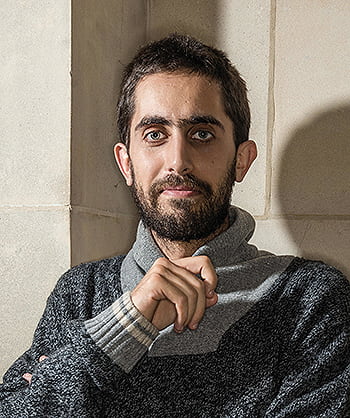
José Bento Awarded a Portion of a $9 Million Grant
Professor José Bento has been awarded $517 thousand as part of a $9 million grant from the National Institute of Allergy and Infectious Diseases. His project is entitled "A blind source separation approach for deconvolution of bulk transcriptional data leads to early detection of ATF cell-states in complex bacterial populations, in vitro and in vivo", a collaboration with Dr. Tim van Opijnen, and is a sub project of the parent project titled "Attacking failure of antibiotic treatment by targeting antimicrobial resistance enabler cell-states.
The parent project involves two other subprojects that together form a collaboration among Dr. Bento, Dr. Tim van Opijnen of the Broad Institute (formerly Boston College), Dr. Jason Rosch of St. Jude Children's Research Hospital, Dr. Ralph Isberg from Tufts University, and Dr. Vaughn Cooper of the University of Pittsburgh.
Non Tenure Track Positions in Computer Science
The Computer Science Department of Boston College seeks to fill several teaching positions with the title of Visiting Assistant Professor. One of these positions has a January 2023 start date. All applicants should be committed to excellence in undergraduate education, and be able to teach a broad variety of undergraduate computer science courses. Faculty in longer-term positions will participate in the development of new courses that reflect the evolving landscape of the discipline.
A Ph.D. in Computer Science or a closely related discipline is expected. Candidates without a Ph.D. may apply, and would have the rank of Visiting Lecturer. We will begin reviewing applications as they are received and will continue considering applications until the positions are filled.Applicants should submit a cover letter, CV, and a separate teaching statement and arrange for at least two confidential letters of recommendation that comment on their teaching performance to be uploaded directly to Interfolio. To apply go to: http://apply.interfolio.com/112746.
Tenure Track Faculty Positions in Computer Science
The Computer Science Department of Boston College seeks to fill two tenure-track positions beginning in the 2023-2024 academic year. Rank is open. Successful candidates for these positions will be expected to develop or currently possess strong research programs that can attract external funding, in an environment that also values high-quality undergraduate teaching. Outstanding candidates in all areas of Computer Science will be considered. For one of the positions, a preference may be shown toward those who can enhance existing departmental strengths in Artificial Intelligence with applications to the Sciences, and in the mathematical foundations of Computer Science.
A Ph.D in Computer Science or a closely related discipline is required. Application review is ongoing.
Applicants should submit a cover letter, a detailed CV, and teaching and research statements, and should arrange for three confidential letters of recommendation to be uploaded directly to Interfolio. To apply go to: http://apply.interfolio.com/113772.
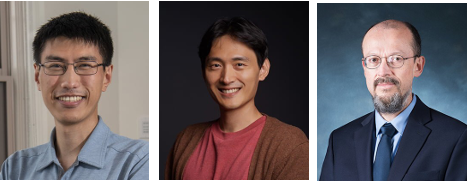
Three Computer Science faculty receive Schiller Institute grants
Computer Science faculty members Donglai Wei, Nam-Wook Kim, and Sergio A. Alvarez were each awarded a grant from Boston College's Schiller Institute under its SIGECS (Exploratory Grants for Collaborative Scholarship) program for fiscal year 2023. This competitive program supports interdisciplinary research projects by faculty teams from different academic fields.
Donglai Wei's (CS) work with Bryan Ranger of the Engineering Department and Jinhee Park of the Connell School of Nursing is titled "Ultrasound for body composition measurements and nutritional status assessment".
Nam-Wook Kim's (CS) project with Theresa Betancourt and Eujin Jung of the School of Social Work, Avneet Hira of the Engineering Department, and Sunand Bhattacharya of the Provost's Office is titled "Digital mental health innovations to support scaling out a family-strengthening intervention for Afghan refugee families: an interdisciplinary collaboration".
Sergio A. Alvarez's (CS) project with Corrine Jurgens and Chris Lee of the Connell School of Nursing, and with Marvin Konstam MD of Tufts Medical Center, is titled "Machine learning of hospital readmission after heart failure based on wearable devices".
For additional information, see https://www.bc.edu/content/bc-web/centers/schiller-institute/research/schiller-institute-grants-main/sigecs-grantee-information1.html.
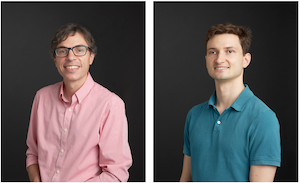
The Computer Science Department welcomes two new faculty members
George Mohler joins the department as the Daniel J. Fitzgerald Professor. His research involves statistical and deep learning approaches to solving problems in spatial, urban and network data science. During the fall of 2022, he will be teaching the course CSCI3391 Topics in Data Science: Computational Modeling of Contagion and Epidemics.
Duncan Levear arrives as a Visiting Assistant Professor. His research interests are in discrete mathematics, specifically enumerative combinatorics. During the fall of 2022, he will be teaching the courses CSCI 1102 Computer Science II and CSCI 2227 Introduction to Scientific Computation.
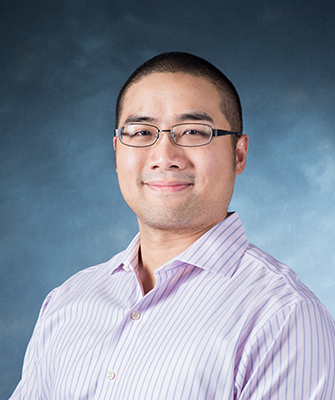
Lewis Tseng Honored as a 2022 Illumination Award Recipient
Computer Science professor Lewis Tseng was among 71 faculty and staff members honored recently by the BC Career Center recently as Illumination Award recipients for their work with students to discern their career interests and incorporate their goals into a broader sense of living a life of meaning and impact. Winners were recognized at celebratory breakfast with a keynote address from Glenn Gaudette, Chair of BC’s Department of Engineering. Award recipients are recognized annually at the Breakfast of Champions.
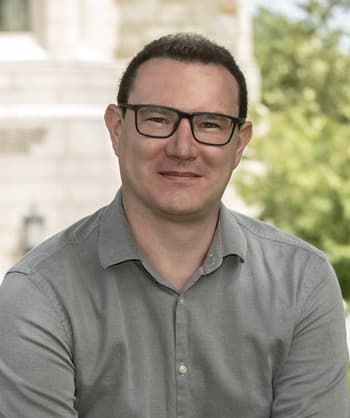
Jean-Baptiste Tristan Receives ACM Software System Award
Jean-Baptiste Tristan of Boston College and his colleagues: Xavier Leroy, Collège de France; Sandrine Blazy, University of Rennes 1, IRISA; Zaynah Dargaye, Nomadic Labs; Jacques-Henri Jourdan, CNRS, Laboratoire Méthodes Formelles; Michael Schmidt, AbsInt Angewandte Informatik; Bernhard Schommer, Saarland University, and AbsInt Angewandte Informatik GmbH, have received the ACM Software System Award for the development of CompCert, "the first practically useful optimizing compiler targeting multiple commercial architectures that has a complete, mechanically checked proof of its correctness."
"CompCert, initiated in 2005, is a compiler for the C programming language and the first industrial-strength compiler with a mechanically checked proof of correctness. It can be used with most computer architectures including PowerPC, ARM, RISC-V and x86 (32 and 64 bits) architectures.
"When it was introduced, CompCert represented a major advance over other production compilers, because it did not experience miscompilation issues since it is formally verified using machine-assisted mathematical proofs. The code it produces is proved to behave exactly as specified by the semantics of the source C program. This level of confidence in the correctness of the compilation process enables CompCert to meet the highest levels of software assurance.
"Today, CompCert continues as a research project at Inria, the French National Institute for Research in Digital Science and Technology and is available under commercial and noncommercial licenses (source code openly available for noncommercial use). Other researchers build on CompCert, and multiple corporations use it for safety-critical applications."
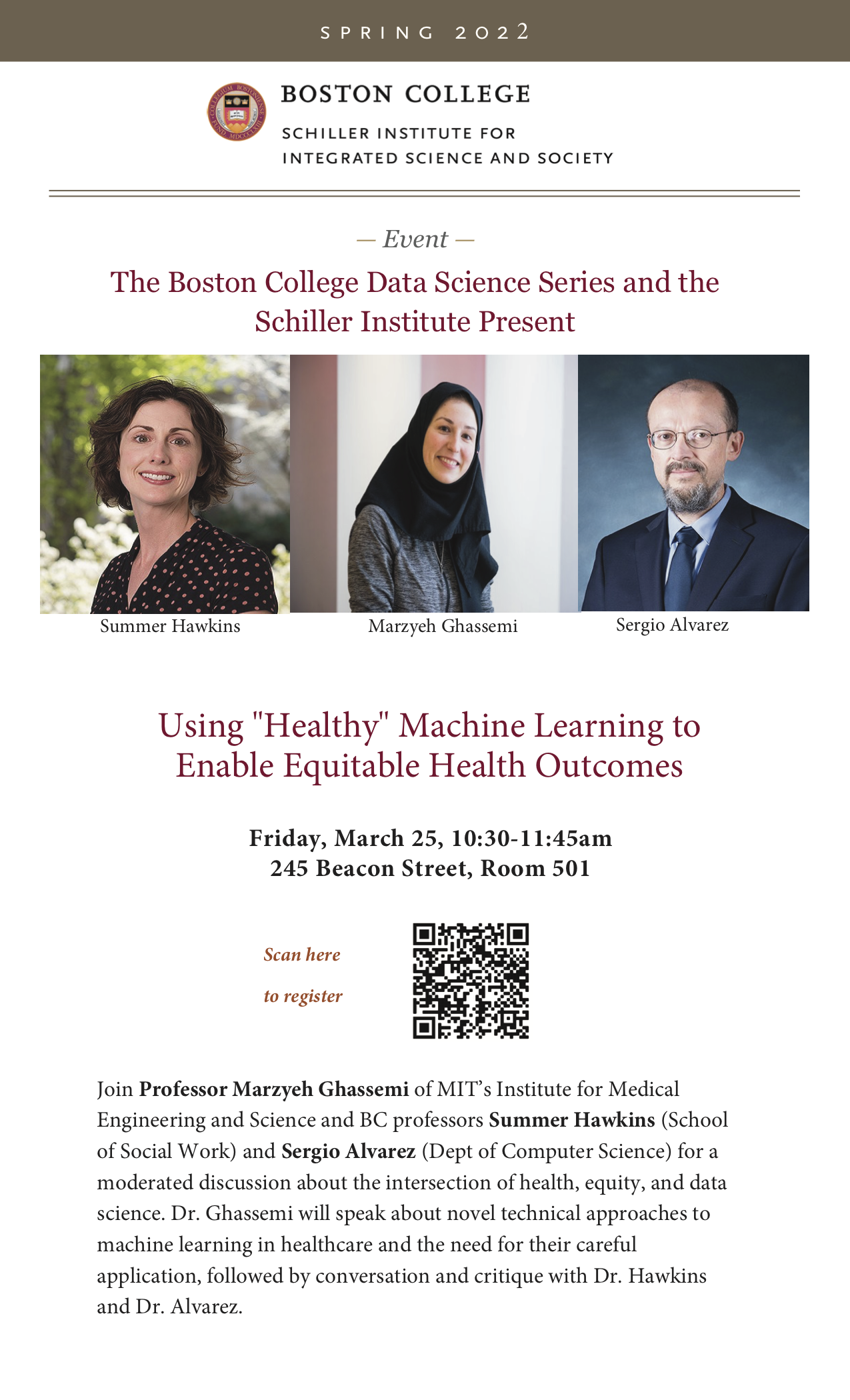
Sergio Alvarez to participate in Schiller Institute panel on Data Science, Health, and Equity
The Schiller Institute will host a moderated discussion at the intersection of data science, health, and equity. Prof. Marzyeh Ghassemi of MIT will speak about novel technical approaches to machine learning in healthcare and the need for their careful application, followed by conversation and critique with BC faculty members Summer Hawkins (School of Social Work) and Sergio Alvarez (Computer Science).
Space is limited. Register soon if you'd like to attend (see poster for link).
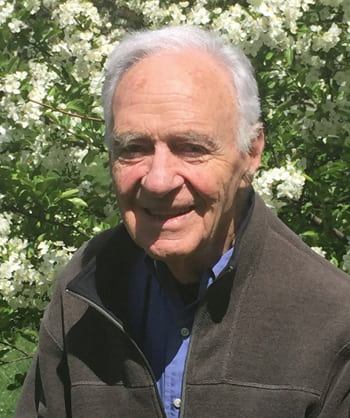
Peter Kugel 1930-2021
Retired professor Peter Kugel, a long-time member of the Computer Science Department and former chair of the department, passed away on October 11, 2021. He died at home with his wife Judy and his sons Jeremy and Seth at his bedside. He was 91.
Peter was known in the department for his warmth and generosity, for his wide-ranging interests and for his humor. He was an exceptional colleague and an especially generous mentor to both students and junior faculty colleagues.
Peter Kugel was born in Berlin, Germany, in 1930 and arrived in the United States via Holland and England when he was seven years old, a few years after Hitler came to power. He grew up in Manhattan, and attended Colgate University. In his own account:
"When I graduated from Colgate, I was drafted into the Army where I helped fight the Korean War from behind a desk in Maryland. I earned a PhD in philosophy at Harvard and, finding the available jobs in philosophy unappealing, I went to work for a company developing software on Boston's Route 128. From there, I went to MIT where I tried unsuccessfully to invent Google. After MIT, I came to Boston College where I taught computer science for 35 years until retiring in 2005."
Much of his scholarly work combined his interests in philosophy and computer science, and focused on the connections between human intelligence, logic and computability. He published an influential article on induction in a computer science journal in 1977, and another, entitled 'Thinking may be more than computing' , in a cognitive science journal in 1986. It was a subject that preoccupied him well into retirement, and that he continued to work on until his death.
But he may have found his largest audience with his reflections on how college faculty members develop as teachers, a subject he wrote about both in scholarly education journals and the popular press. In 'A Little Coffee to the Rescue', a piece published in The New York Times in 1989, Peter described how he learned from a colleague to use a cup of coffee as a prop, and its effect on his students.
"I took a full cup of coffee with me to my next class that Monday morning long ago. It helped. My pauses, as I sipped, not only gave my students time to think about what I had said, but gave me time to think about what I was going to say next. I began to use my pauses to look around the room to see how my students were reacting to what I had just said. When I saw their attention wander, I tried to bring them back. When I saw them puzzled over some concept that I thought I had explained, I gave another example. My lectures became less organized and less brilliant, but my students seemed to understand me better. And my courses became more popular."
The year before he died, Peter reflected on his long life in a post on his wife Judy's blog on aging.
"On Tuesday, I'll be 90. People will congratulate me and I'll thank them. But I'll be puzzled. What they're congratulating me for (having stayed on this side of the grass for ninety years) is mostly the work of others. So why are people congratulating me?
"Why aren't they congratulating the author of the 80-something blog, my doctors, my friends my genes or my luck? In 1936, Peter Kugel was a 6-year-old boy living in Berlin, Germany. He spoke German, collected stamps and, like any German 6-year-old, adored Adolph Hitler.
"That boy is gone. He stopped loving Hitler when he found out how Hitler felt about him. Today's Peter Kugel can't speak or understand German. If he met the six-year-old Peter Kugel, they wouldn't understand each other.
"I'm not the 6-year-old German. And that's probably a good thing. The stamps that fascinated the 6-year-old would bore me today and the discussions about medical procedures that fascinate the 90-year-old that I'll be on Tuesday, would have bored the 6-year-old boy.
"As I brushed my teeth this morning, I wondered what I would do if I was given the chance to live one more day and I had to decide to live it as either the young boy I was in 1936, knowing only what I knew then, or live it as the old man I am today.
"I think I'd ask them to bend the rules and let me have both."
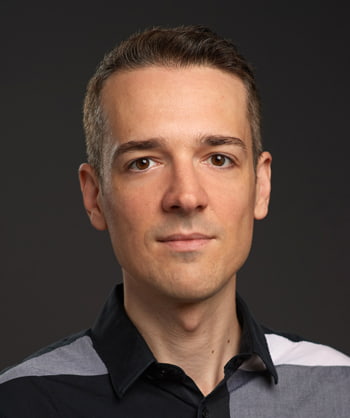
Rafael Ubal Invited to Be Part of Boston College Delegation at the UN Conference on Climate Change
Boston College Computer Science professor Rafael Ubal has been invited to be a part of a delegation from Boston College to attend the United Nations Conference on Climate Change in Glasgow.Â
Prof. Ubal is providing daily updates, and sent the message below:
"I thought I'd share with you that BC gave me the opportunity to be part of its delegation to attend the United Nations Conference on Climate Change (COP26), for which I'm very excited and grateful.
"I'm planning to record daily vlogs with the highlights, for which I'll try to involve other students and faculty in the group as well. If you'd like to receive updates, you may subscribe on YouTube. Here's today's short video, with some preliminary thoughts:
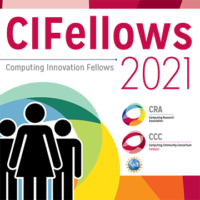
Zoey Liu Named a Computing Innovation Fellow
Boston College Computer Science postdoctoral research fellow Zoey Liu has been named a Computing Innovation Fellow by the Computing Research Association.
The Computing Research Association (CRA) and its Computing Community Consortium (CCC) announced funding for a cohort of Computing Innovation Fellows (CIFellows) for 2021, with strong support from the National Science Foundation (NSF). The program sponsors two-year postdoctoral research positions in computing, as well as career development and cohort building activities, to provide a career-enhancing bridge experience for recent Ph.D. graduates.
The grant will support Liu in her work on natural language processing for endangered and indigenous languages.
Liu is supervised by Gianinno Family Sesquicentennial Assistant Professor Emily Prud'hommeaux.
Using Human-centered Approaches to Make Cloud Computing Green
The Schiller Institute has awarded one of its fifteen inaugural Schiller Institute Exploratory Collaborative Scholarship (SIGECS) program grants to Morrissey College Computer Science faculty collaborators Lewis Tseng and Nam Wook Kim. They share the Type 1 grant of up to $15,000.
--
Project abstract:
Project Abstract: Our daily life and work are migrating to cloud computing. One major consequence is the excessive amount of energy consumed by computation and storage infrastructures behind cloud computing (namely datacenters). In 2016, the US Department of Energy found that all datacenters consumed roughly 2% of all electricity consumed nationwide. This number is expected to grow exponentially as more and more industries are adopting the clouds.
One obvious solution is running datacenters on renewable-based power grids; however, a major challenge is the volatile energy supply from renewable resources, which results in intermittent unavailability of the clouds. For cloud service providers, unavailability, even for a one-second duration, poses a huge monetary loss, because users nowadays have almost zero tolerance of service delay and/or disruption.
Most prior works focused on designing more resilient systems and/or algorithms to minimize the unavailability intervals and frequencies. We adopt a drastically different approach, by exploring a human-in-the-loop design to tackle the challenge. We aim to design an interactive system that (i) takes user preferences and their tolerance (to unavailability) into account when tuning system configuration and design, and (ii) uses system metrics and availability predictions to encourage users to adopt a more energy-efficient behavior.
--
The full story can be viewed at <https://www.bc.edu/content/bc-web/centers/schiller-institute/programs/schiller-institute-grants-main/sigecs-grantee-information.html>.
CS Waitlist for Fall 2021 Courses
If you are unable to register for a course during your registration period due to a full course please feel free to add your name to the CS department course waitlist.
*The waitlist, along with any overrides, if granted, will be processed at the end of the registration period (you will be contacted during the week of June 7 if we are able to place you in the course you requested)*
** Once the registration period has ended, we will begin to move people from waitlists into the courses based on need (e.g., senior majors who need a course to graduate will have highest priority).**
Some courses have filled up quickly, like Visualization. Please know there are several other 3000 level courses available as we have added 2 additional courses this semester. We are also reserving seats in Tech & Culture for Senior BS majors as this is a requirement for the BS degree.
You may choose to check back regularly as some students adjust their schedules and drop a course to pick up another.

"Confronting Environmental Racism"
The Schiller Institute recently highlighted projects by students and student groups that grapple with race and environmental justice.
Based on a student project from Professor Nam Wook Kim's Web Application Development course (CSCI 2254), Yicheng Shen, Computer Science major, Class of 2021; Jianxin Wang, Computer Science major, Class of 2022; Qingyun Yang, Computer Science and Psychology major, Class of 2022; , Computer Science and Economics major, Class of 2022; Zehua Zhang, Computer Science and Economics major, Class of 2022 have created a "GoGreen" web app to "promote people’s awareness of their daily environmental footprints."
You can learn more about the project by visiting the project's website at <https://yichengshen.github.io/go-green/> and an online demonatration at <https://www.youtube.com/watch?v=TNegBiqt9k0>.
Tassarotti and Tristan Receive Four-Year NSF Grant
Two Boston College Computer Science Department faculty members were recently awarded a grant totaling almost $1 million from the National Science Foundation.
Drs. Joseph Tassarotti and Jean-Baptiste Tristan received the award in support of their project, “SHF: Medium: Formally Verified Compilation of Probabilistic Programs.”
"We're honored to receive this grant. We believe that probabilistic programming is a promising technique for data science and machine learning, and this grant will enable us to explore the foundations of this area," writes Dr. Tassarotti.
The four-year award will cover supplies, travel expenses, and salary for the investigators, undergraduate students, and postdoctoral staff. It becomes effective on May 1, 2021.

Jean-Baptiste Tristan to serve on the Provost's Advisory Council
Computer Science faculty member Jean-Baptiste Tristan was elected to a three-year term to serve on the Provost's Advisory Council (PAC) beginning July, 2021. The PAC advises the Provost and Dean of Faculties on issues of major importance to the faculty and academic operations of Boston College.
IMPORTANT NOTICE About Closed Computer Science Courses During Registration and Course Wait Lists
(11/11/2020) - Caps on enrollments in Computer Science courses are adjusted throughout the registration period. The adjustments are designed to keep seats open for students from different classes (especially for Freshmen and Sophomores in CS1 and CS2), to reserve a sufficient number of seats for majors so that students will be able to complete programs required for graduation, and to balance loads, so that not all students gravitate to the most sought-after courses. Note that there are no major restrictions for CS1, and no course is restricted exclusively to majors. However, UIS is not very flexible about the kinds of restrictions we can make; for example, it gives us no way to reserve seats specifically for minors or non-majors.
If you find that a Computer Science course for which you are trying to register is closed at your pick time, use this Google form to request a spot. Please note that submitting this form only adds you to the wait list, and does not guarantee that you will be able to enroll in the course. DO NOT fill out this form unless your pick time has passed and the course is full. We open up seats gradually as each successive class of students registers, and if the class is marked CLOSED today, it may very well be open tomorrow when it is time for you to register.
If you wish to be on the wait-list for MULTIPLE courses you must fill out this form one time for EACH course. (For example, if you want to be on the list for 3 courses you should fill out the form 3 times)
Once registration has ended (11/17/20), we will move people from wait lists into the courses based on need (e.g., senior majors who need a course to graduate will have highest priority). We will then ask you to email the department (mary.mulkeen@bc.edu) to complete your registration.
Or, to put it in a Computer Science-y way, the wait list is a priority queue, not a queue, so the order in which you sign up is not relevant. Just be sure to make your requests by November 17, 2020.
Computer Science Faculty Positions
The Department of Computer Science at Boston College is hiring tenure-track and non-tenure-track faculty for 2020-2021.
Shikun Wang Co-Authors Paper in "IEEE Transactions on Signal and Information Processing over Networks"
Boston College Computer Science alumnus Shikun Wang (B.S. '19) has co-authored a paper with CS department faculty member José Bento entitled, "Massively Distributed Graph Distances." The paper was accepted for publication in 2020 in "IEEE Transactions on Signal and Information Processing over Networks."
"[Shikun's] work was very important to improving the numerical experiments of our group's work on graph distances, which eventually led to an acceptance," said Prof. Bento.
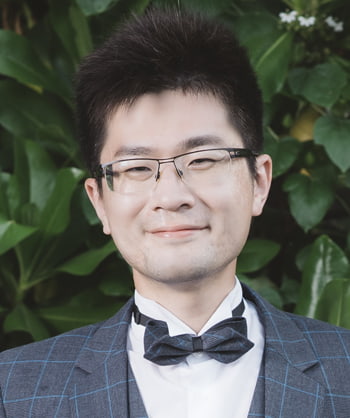
Hsin-Hao Su Receives NSF Award
BC Computer Science Assistant Professor Hsin-Hao Su has received funding from the National Science Foundation for a research project entitled Combinatorial Optimization Problems in Vertex Centric Computation. This award will provide a total of approximately $450K in funding over a period of three years.
More information below (from the project's abstract):
Vertex-centric models, such as the LOCAL model and the CONGEST model, are prominent distributed models that capture how devices coordinate computation without access to global information. Such models encapsulate the computation arising in various distributed scenarios, including sensor networks, robotics, wireless networks, and networks of biological agents. Combinatorial optimization is a study of finding an arrangement of objects that optimizes certain objectives. While many combinatorial-optimization problems can be solved efficiently in the traditional centralized setting, progress on distributed vertex-centric algorithms is largely falling behind. This project aims to develop new algorithms for several fundamental combinatorial-optimization problems in vertex-centric models. Developments in efficient vertex-centric algorithms will facilitate the shifting of computing paradigms into highly distributed systems. They will also enhance the technologies for autonomous systems such as swarm robotics, self-driving cars, and unmanned aerial vehicles. Moreover, algorithms developed in the models can be directly transformed into algorithms for processing massive graphs in modern architectures using existing frameworks such as Apache GraphX. To promote the vertex-centric models, the project includes the development of a new course at Boston College that integrates the theoretical and practical aspects of the models.
The project will focus on the following three basic combinatorial-optimization problems: (i) matching, which is to match up the entities so that the total utility is maximized or minimized; (ii) routing, which is to route multiple messages simultaneously from their sources to their destinations while minimizing congestion and the delay; (iii) clustering, which is to partition the nodes as consistently as possible with the correlation among the nodes. The goals of the project are to develop new vertex-centric algorithms that compute the answers as fast as possible while keeping the answers as close to the optimal as possible. Achieving such goals involves establishing new tools and techniques, which would lead to a deeper understanding of how to solve a wider range of combinatorial optimization problems in the vertex-centric models. Also, as the techniques developed in the vertex-centric models usually require the development of lightweight processes and exploitation of parallelism, they can often be applied to other computational models such as streaming models, dynamic graph models, local computation models, and massively parallel computation models.

Computer Science majors honored for their achievements in 2019-2020
Several CS majors have recently received well-deserved academic awards for their academic achievements and contributions to the department and university.
In April, Rachel Duquette, Annie Hong, David Kocen, Mualla Ozdemir, Haochen Pan, Aidan Pavao, Darius Russell Kish, Brian Ward, and Christine Yang were chosen for the honor of Dean's Scholar, awarded by the Dean of the College of Arts and Sciences to juniors with top academic achievement, co-curricular initiatives, and a sense of purpose in how they approach their future.
Sophomores Kemal Atay, Isabel Bulman, Jieqi Di, Brielle Donowho, Ziyu Huang, Shuwen Liu, Alexander Lobanov, Nathaniel Rankin, Robert Smithers, and Maya Taha were named Sophomore Scholars. This designation is reserved for sophomores in the College of Arts and Sciences who rank in the top three percent of their class.

BC Welcomes New CS Faculty Member Nam Wook Kim
The February 25, 2020 issue of the BC Chronicle features new faculty member Nam Wook Kim, Assistant Professor of Computer Science. [link]
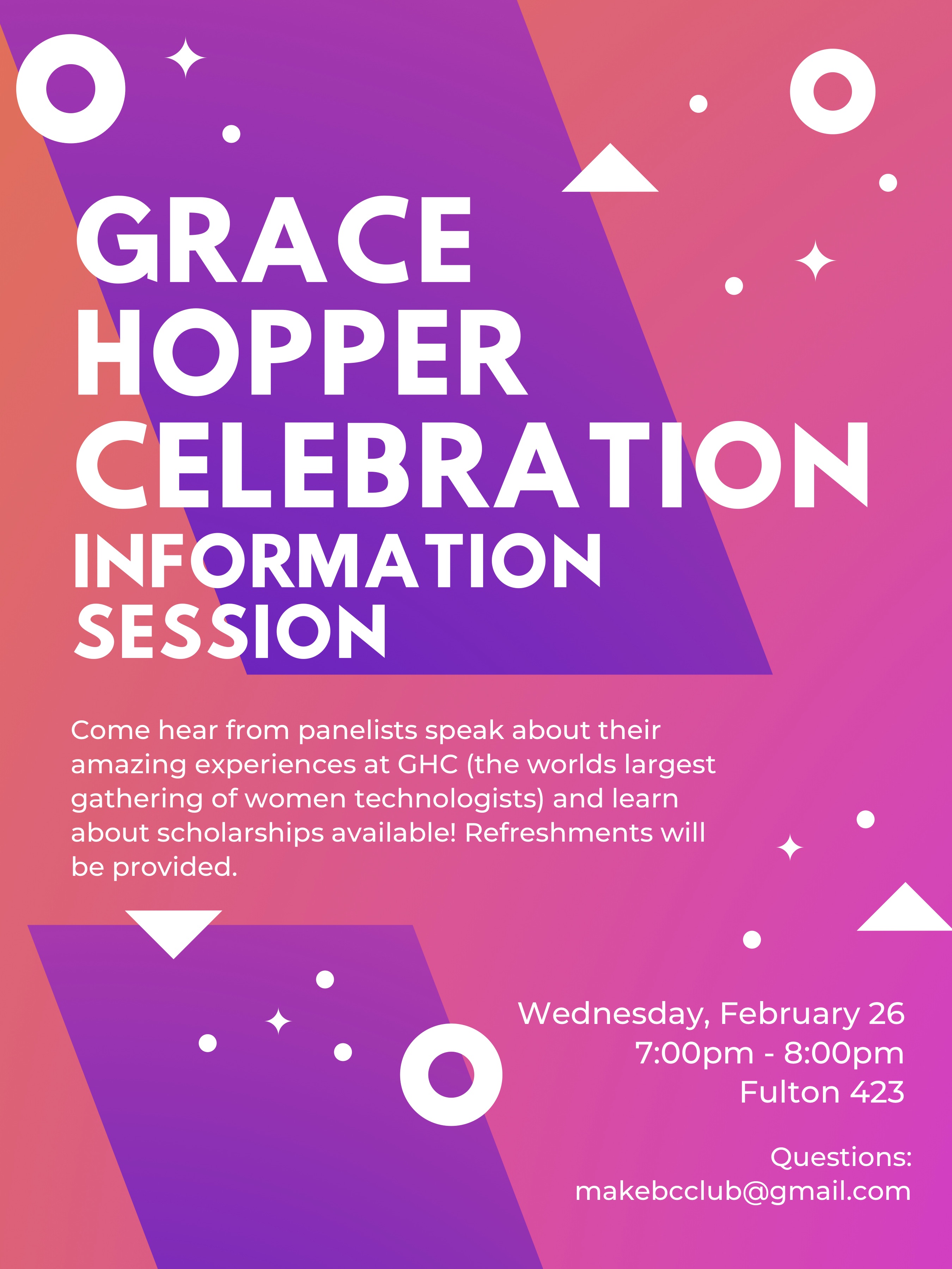
Grace Hopper Information Session, February 26, 2020
The Grace Hopper Conference (GHC) is a great conference for female students in STEM fields. Last year four of our students attended. Some had onsite interviews and received offers for internships for the following summer.
During the information session, the students will talk about their experiences attending the conference last year. We highly recommend the female students to attend this event as the deadline for submitting an application for a GHC scholarship is March 4. (Scholarship will cover all the costs of attending the conference.) Students will learn about GHC, different scholarships, and tips on writing better applications for scholarships.
When and where:
Wednesday, February 26
7:00pm - 8:00pm
Fulton 423
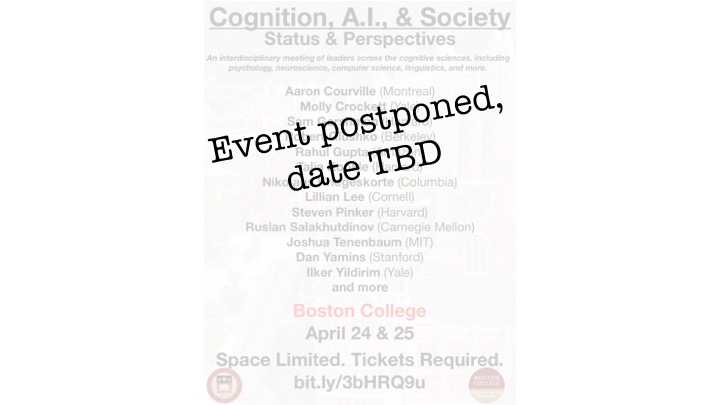
Cognition, A.I., & Society, April 24-25, 2020
POSTPONED: Cognition, A.I., & Society, Status & Perspectives is an interdisciplinary meeting of leaders across the cognitive sciences, including psychology, neuroscience, computer science, linguistics, and more, to be held on the Boston College campus April 24-25, 2020. A tentative schedule is shown, here.

Two Introduction to Computer Science Course Sessions Offered in Summer 2020
CSCI 1101 01 Computer Science I (3 credits)
This course is an introduction to the art and science of computer programming and to some of the fundamental concepts of computer science. Students will write programs in the Python programming language. Good program design methodology will be stressed throughout. There will also be a study of some of the basic notions of computer science, including computer systems organization, files and some algorithms of fundamental importance. Satisfies core requirement.
Session 1: 5/13/2020-6/17/2020
Monday & Wednesday: 9:00 AM-12:25 PM
Maira Marques Samary
CSCI 1101 02 Computer Science I (3 credits)
This course is an introduction to the art and science of computer programming and to some of the fundamental concepts of computer science. Students will write programs in the Python programming language. Good program design methodology will be stressed throughout. There will also be a study of some of the basic notions of computer science, including computer systems organization, files and some algorithms of fundamental importance. Satisfies core requirement. Approved for BCE Six-Week Program Participants.
Session 2: 6/22/2020-7/29/2020
Monday & Wednesday: 9:00 AM-12:25 PM
Maira Marques Samary
--
For more information, visit https://www.bc.edu/content/bc-web/sites/bc-summer/undergraduate-courses.html.
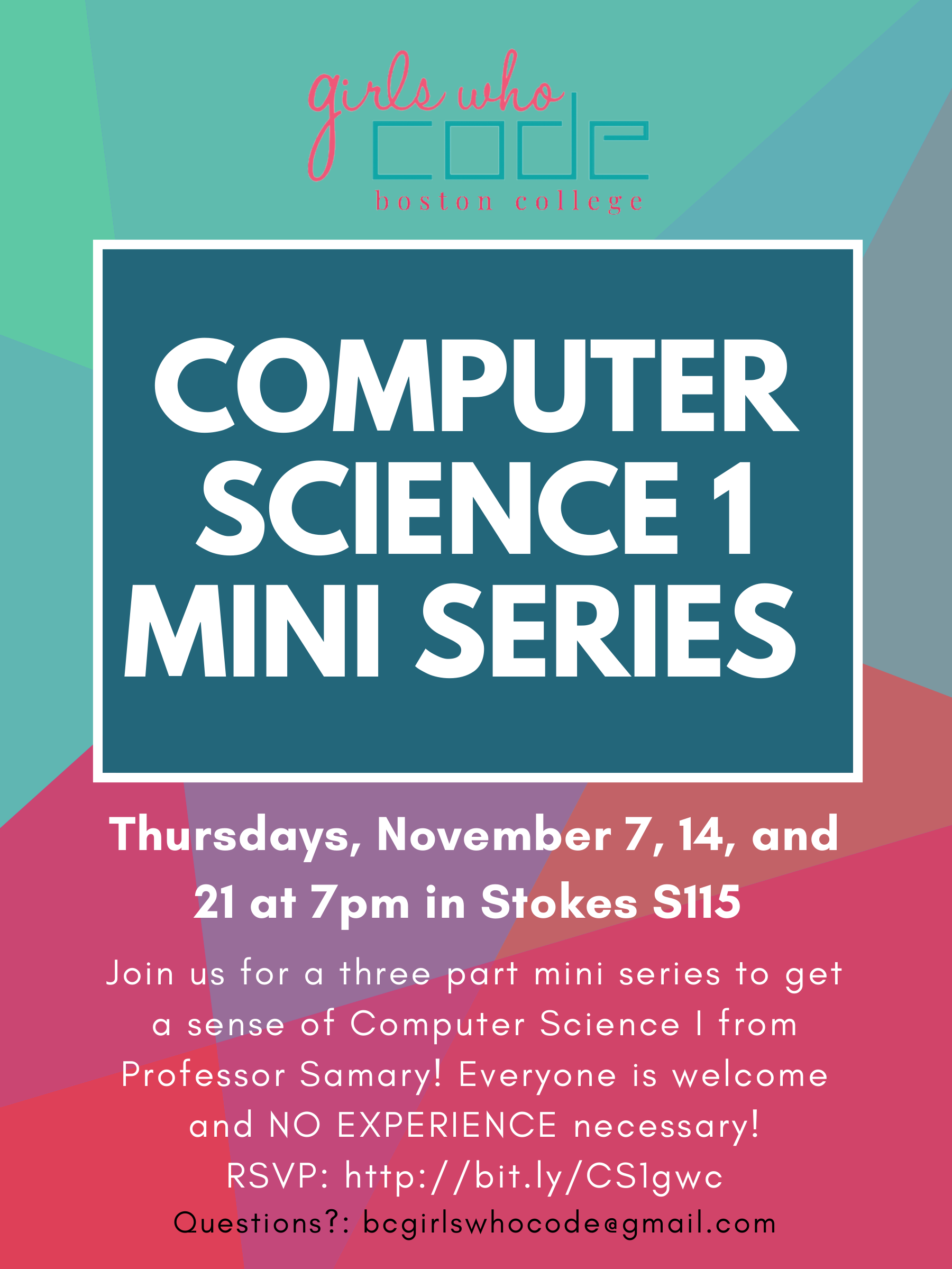
Girls Who Code Present: Computer Science 1 Mini Series
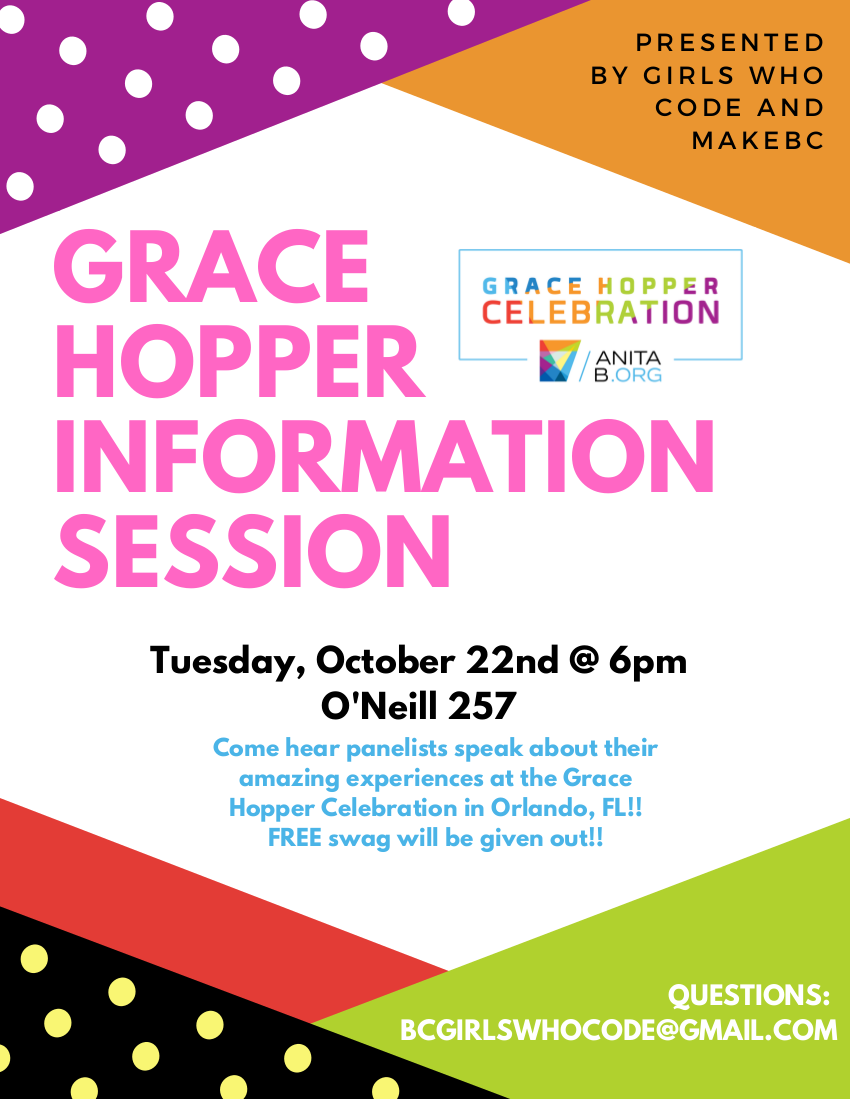
Grace Hopper Information Session, October 22, 2019
Computer Science majors honored for their achievements
Several CS majors have recently received well-deserved academic awards for their academic achievements and contributions to the department and university.
Graduating seniors Mika Chesnutt and Shikun Wang were selected to receive the John J. Neuhauser Award for outstanding achievement and / or citizenship in Computer Science over the course of their studies at Boston College. This award is presented during Commencement Weekend.
In April, Junior William Pyle was chosen for the honor of Dean's Scholar, awarded by the Dean of the College of Arts and Sciences to juniors with top academic achievement, co-curricular initiatives, and a sense of purpose in how they approach their future. Sophomores Erin Corcoran, Haochen Pan, Aidan Pavao, Rachel Whitworth Duquette, and Brian Michael Ward were named Sophomore Scholars. This designation is reserved for sophomores in the College of Arts and Sciences who rank in the top three percent of their class.
CS Department Welcomes New Faculty
We are very pleased to welcome several new core and visiting faculty members for the 2019-2020 academic year.
Dr. Nam-Wook Kim joins us as a tenure-track Assistant Professor. He comes to us from Harvard University, where he completed a Ph.D. in Computer Science. Dr. Kim's research focuses on data visualization. He will offer a course on that topic in the fall of 2019.
Dr. Joseph Tassarotti joins us as a tenure-track Assistant Professor. He arrives from a postdoctoral position at MIT, following completion of his Ph.D. at Carnegie Mellon University. Dr. Tassarotti does research in the field of formal verification of software systems, and will offer courses on related topics in the future.
Ms. Anjum Biswas, M.S., who has been a Visiting Lecturer in our department for the past two years, returns in a new role as a core Lecturer. She will continue teaching courses in Computer Organization and other subjects.
Dr. Rafael Ubal joins us as a Visiting Associate Professor, following several years as an Assistant Teaching Professor and Associate Research Engineer at Northeastern University. Dr. Ubal earned a Ph.D. in Computer Engineering from the Universidad Politecnica de Valencia, Spain. He will offer a variety of courses, including Operating Systems this fall.
Dr. Carl McTague will be a Visiting Assistant Professor. He received a PhD from Cambridge University, and has accrued teaching and research experience at several institutions, and in several areas, since then. He will teach Logic and Computation in the fall.

WICS Sponsoring Grace Hopper Conference Informational Session
The Boston College Women in Computer Science chapter is hosting an information session on Tuesday, February 26, 2019 at 6 PM in Fulton 245. The session will be moderated by Computer Science faculty members Maryam Jalalitabar and Maira Samary.
The Grace Hopper Conference is the largest gathering of women technologists.
The Gender Gap in Computing: How Some Universities are Moving the Needle
Women in STEM, which includes CS Asst. Prof. Emily Prud'hommeaux as a faculty collaborator, will sponsor guest speaker Linda Sax of UCLA. Dr. Sax's talk is entitled, "The Gender Gap in Computing: How Some Universities are Moving the Needle" in Fulton Hall 117 on Thursday, February 7, 2019 at 2:45 PM. All Boston College community members are invited.
Linda J. Sax is Professor of Higher Education in the Graduate School of Education & Information Studies at UCLA. Dr. Sax’s research focuses on gender differences in college student development, with an emphasis on women in STEM fields. She is currently the Principal Investigator for the research component of the BRAID initiative aimed at diversifying undergraduate computing. Dr. Sax is the author of more than 100 publications, including The Gender Gap in College: Maximizing the Developmental Potential of Women and Men (Jossey-Bass, 2008).
Computer Science faculty teaching featured in BC News
Computer Science Assistant Professor Emily Prud'hommeaux was featured in a BC News article on undergraduate teaching. Her work exemplifies our department's aim to produce both excellent research and excellent teaching. [Full story]
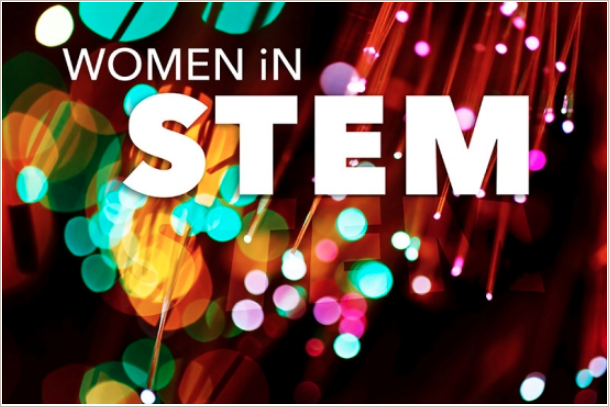
Computer Science Faculty Member Addresses Challenges to Women in STEM
Women today face unique challenges in STEM (Science, Technology, Engineering, Mathematics) fields. Assistant Professor Emily Prud’hommeaux of the Computer Science Department is helping to surmount these challenges as one of four faculty collaborators who are organizing an innovative program at Boston College called Women In STEM.
Sponsored by the Boston College Institute for the Liberal Arts, Women In STEM “aims to establish a new program focused on promoting and enhancing women’s successes”, as described on the program's web site. Participants work with undergraduate students, graduate students, postdoctoral researchers, and faculty in STEM fields at Boston College and beyond. The program sponsors various initiatives, including a year-long speaker series “highlighting recent research on both diversity and inclusion in STEM and the role that gender and racial biases play in shaping scientific questions and technical systems.”
“We hope that the diverse array of events and activities we’re planning as part of this project will foster interest in examining the role of under-represented groups in math and science, particularly as the university plans an expansion of its programs into data engineering,” remarked Prof. Prud’hommeaux.
As part of her activities with Women In STEM, Prof. Prud’hommeaux is hosting the February 7, 2019 talk by UCLA’s Linda Sax, entitled “The Gender Gap in Computing: How Some Universities are Moving the Needle.” Sax is known for her work on bias and equity in undergraduate computer science education.
“Dr. Sax is collaborating with Dr. Maria Klawe, president of Harvey Mudd College, on the BRAID initiative (https://braidresearch.gseis.ucla.edu), whose goal is to increase the number of women and students of color majoring in computer science,” notes Prud’hommeaux. “We look forward to learning more about the most successful strategies for supporting this aim. This will also be a unique opportunity for BC's Women in Computer Science student group to discuss their ideas and experiences with an expert in the field of CS education.”
For further information, see the Women in STEM web site at
https://www.bc.edu/centers/ila/events/women-in-stem.html
CS Department Welcomes Two New Core Faculty
Dr. Hsin-Hao Su joins the department as a tenure-track Assistant Professor this fall. He was previously an Assistant Professor at North Carolina State University in 2017-2018, following postdoctoral work at MIT. Dr. Su holds a Ph.D. in Computer Science from the University of Michigan and a B.S. in Computer Science from National Tsing Hua University. His research is in the theoretical foundations of distributed systems, including connections with biologically inspired algorithms. He is teaching a course in Algorithms, CSCI 3383, this fall.
Dr. William Griffith returns to our department in a new role as Associate Professor of the Practice. He was formerly a Visiting Assistant Professor, and has a long history at Boston College, including extensive teaching experience in several departments, as University Registrar, and as Acting Dean of Admissions. Dr. Griffith holds a Ph.D. in Psychology from the University of Massachusetts Amherst, a Ph.D. in Philosophy from Boston College, and a B.S. in Mathematics from St. Joseph University. He is teaching the courses Technology and Culture, CSCI 2267, and Computer Science I, CSCI 1101.
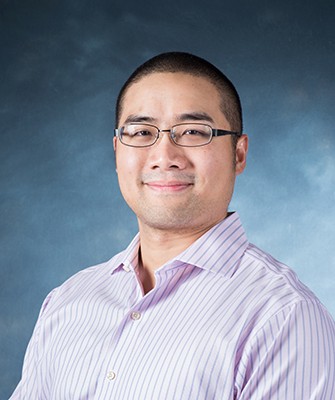
Computer Science Assistant Professor Lewis Tseng awarded $242K NSF research grant
BC Computer Science Assistant Professor Lewis Tseng has received funding from the National Science Foundation for a research project entitled Improving Latency in Geo-Replicated Storage by Relaxing Consistency Requirements. This award will provide a total of approximately $242K in funding over a period three years.
Recent years have seen a tremendous growth in the popularity of cloud services. Distributed storage systems are a key component of the cloud computing revolution. Distributed storage systems are designed to achieve a suitable tradeoff between latency, data consistency and dependability. This project addresses development of new consistency models that take into account application characteristics and hybrid fault models. The ultimate goal is to improve our understanding of the trade-offs between consistency, latency, and dependability in distributed storage systems.
The project includes two synergistic thrusts. First, the project explores consistency models that consider graph-based application characteristics. For example, social and trust graphs model user relation and interaction for many applications. The first thrust explores graph-based consistency models that are acceptable for the applications, and yet improve latency of client operations. Second, prior storage systems typically either only tolerate benign failures, or tolerate worst-case faults with high overhead. This project considers non-colluding faults as well as Byzantine faults, and investigates approaches to reduce overhead by relaxing some of the requirements imposed by prior systems.
Proposed research is expected to improve the understanding of the impact of application characteristics and different types of faults on consistency-latency trade-off in distributed storage systems. Tolerance of more severe faults is likely to become important for future critical web-based services and applications. Additionally, with the tremendous growth in social and trust networks, mechanisms to improve their performance are of interest. This project helps achieve such improvements through the development of new consistency models.
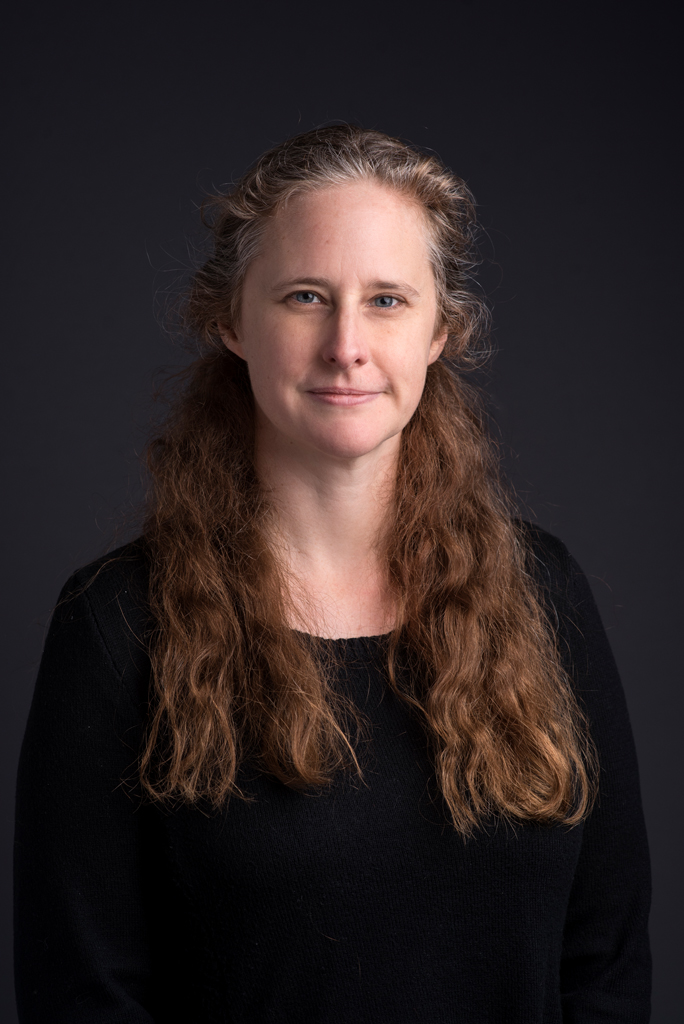
Computer Science Assistant Professor Emily Prud'hommeaux awarded $500K NIH research grant
BC Computer Science Asst. Prof. Emily Prud'hommeaux has received an R21 research grant from the National Institutes on Deafness and Other Communication Disorders in the National Institutes of Health (NIH), for her work Automated analysis of pragmatic language development in Autism Spectrum Disorder. Approximately $500K is expected over three years, with $175K in the first year..
More information below.
(from the award abstract)
In this project, we propose using computational language analysis methods to convert speech into text transcripts and to automatically identify specific areas of pragmatic deficit in those transcripts. We explore these methods using spoken language data we will collect from high-functioning verbal adults with ASD and with typical development. In the course of this project, we will investigate: (1) the precise pragmatic functions that are affected in high- functioning adults with ASD; (2) the extent to which these and other reported pragmatic deficits are observed in individuals with ASD regardless of age; and (3) the accuracy of our novel computational methods for extracting these metrics from spontaneous spoken language samples. While achieving these aims, we will explore the utility of automated analysis of spoken language, setting the stage for a future proposal to develop an automated software tool for analyzing spoken language to identify specific areas of deficit in pragmatic expression. A tool for automatically identifying strengths and weaknesses in pragmatic expression could offer utility not only to researchers investigating language functioning in ASD but also to clinicians tasked with diagnosis and health professionals working to develop targeted therapies and interventions. Such interventions could lead to more favorable social outcomes for individuals of all ages with ASD and higher rates of employment among adults with ASD, potentially yielding reductions in costs associated with and resources allocated for serving the needs of this special population.
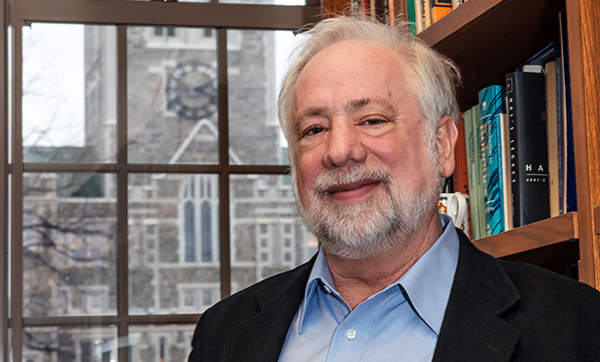
In Memoriam: James Gips
Prof. James Gips, long-time former faculty member in the Department of Computer Science, passed away on June 10th, 2018.
BC News
Presentation of Senior Theses and Independent Research Projects
You are cordially invited to attend the
student presentations on
Monday, May 7
Fulton 415
Presentations of Senior Theses and
Independent Research Projects
You are cordially invited to attend the student presentations on Monday, May 7 in Fulton 415
Time / Student / Title
10:20 / Daniel Brett / Linkage Attacks and the Fallacy of Anonymity: A Study of Modern Privacy Techniques
10:40 / Sazan Dauti / FastMock: Automatically Render Realistic Device Screen Mocks using Computer Vision and Machine Learning
11:00 / Minghao Liu / The PCP Theorem and Hardness of Approximation
11:20 / James Clark / Hash Array Map Tries
11:40 / Zhangwang Wei / An Approximate Byzantine Median Algorithm
Following the presentations there will be lunch provided for all attendees. Food will be from Anna’s Taqueria.
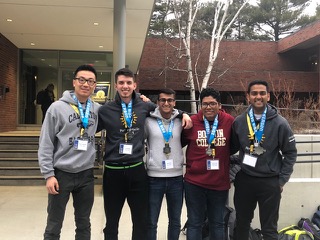
BC Computer Science Team Participates in PerkinsHacks
Five freshman Computer Science students from Boston College were among the 300 students from over a hundred schools who participated in the recent PerkinsHacks event April 13-14, 2018 at the Perkins School for the Blind in Watertown, Massachusetts.
Lurein Perera, Juan Suarez, Jay Agrawal, Yinzhe (Peter) Ma and Estevan Feliz were part of this innovative weekend activity aimed at “solving real problems for real people” using technology to improve accessibility for people who are differently-abled.
The hackathon was structured around the idea of attempting to solve one of the six real world problems that visually impaired individuals face. “These problems and challenges were provided by real people prior to the event,” explained Feliz.
The BC team explored how a blind person might better navigate through dining halls in search of an empty seat and “read and know” what’s being served on the menus.
“This was one of the more difficult challenge categories while also having the largest number of teams competing to complete the task. We had a total of 24 hours to put together a competitive concept that would be compelling enough to stand out from the other teams and ultimately solve a problem visually impaired individuals must face while simply going for a meal in their dining halls.”
The team put together a system consisting of several components to update the users on which seats in the dining hall are available, along with the members sitting at the table (i.e., friends, classmates, etc.)
“In a real-world scenario, the system would consist of pressure sensors beneath each chair connected to an Arduino microcontroller at each table in the dining hall. These microcontrollers would all be connected to a local server which parses all of the data being sent from the sensors and pushes it to the cloud through our custom-built Application Programming Interface,” explains Feliz. “Then, our smartphone app would query all of the data from our server and read out the tables with open seats, with preference given to tables that have open seats and your friends sitting at them.”
Feliz said friends and acquaintances of the visually impaired individuals would tap their phone on a table’s NFC (“Near Field Communication”) sensor and check-in, to allow the users to know their locations.
“To solve the issue of attempting to read menus or other text in a dining hall, we created an app feature which will allow the user to point the phone at text.
Within a few seconds, the application will display each individual character in Braille. The user would then tap around until a dot was pressed--which would in turn provide the user with a vibration or feedback.” Feliz added, “This is the first ever implementation of a smartphone Braille reader application. We were able to have a visually impaired individual successfully identify a letter while using it.”
The team’s final testing went very well. “After ‘pitching’ our project alongside students from Yale, Harvard, MIT, Brown, Cornell, and Georgia Tech—to name a few—our team won first place!”
Feliz reports they've created a website for the public to learn more about their project and to stay up to date on development. The site can be viewed at http://seatsbc.com.
Congratulations to Boston College team members: Lurein Perera, Juan Suarez, Jay Agrawal, Yinzhe (Peter) Ma and Estevan Feliz for their caring and commitment in service to others in the finest Jesuit tradition.
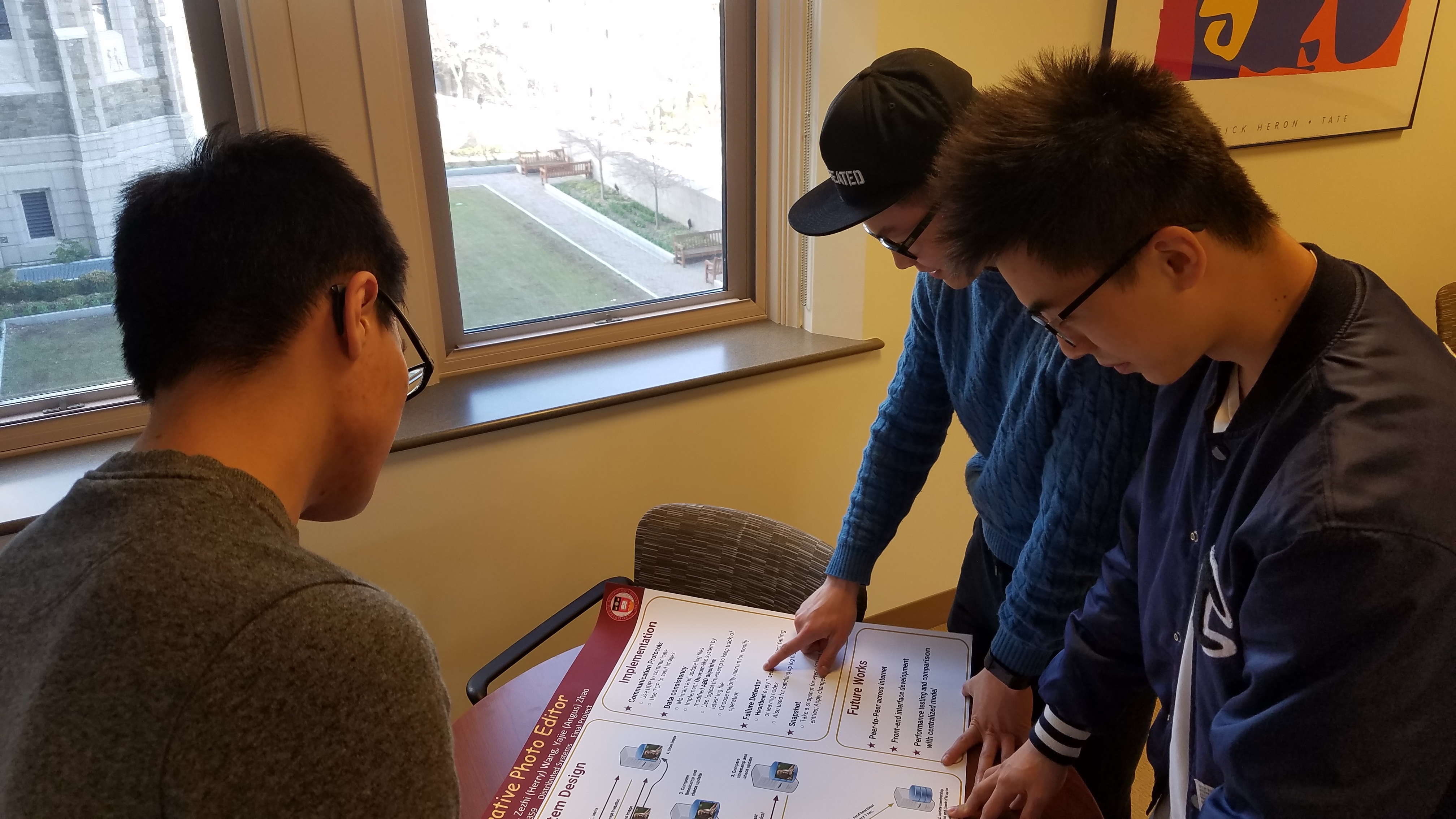
Distributed Systems Poster Session, May 1, 2018
Distributed Systems: Poster Session
Time: May 1st 3:00 - 4:30pm
Location: 2nd floor St. Mary Hall South (CS Department)
Please join us for the end-of-semester poster session for CSCI 3359, Distributed Systems. Check out your friends' and students' awesome final projects, ask some hard questions, and consume free food.
Topics range from distributed music and photo applications, distributed games, study on cryptocurrencies, and network analysis.
Project Title & Abstract:
Distributed Applications
Title: Juke Jam
Abstract: Juke Jam is at the heart a social jukebox. Our website allows multiple people to seamlessly and in real time add to and alter playlist(s). One person can go onto our website and sign up to be a host using their Spotify account. Using a code generated from our website, the host can then distribute the code and let friends add songs to any one of their Spotify playlists, empty or not. Then the music begins. Juke Jam is perfect for any social gathering and event – use it at any party, or even at a wedding!
Title: Collaborative Photo Editing
Abstract: Tired of spending a lot of time on photoshopping everyone in a group picture? Not satisfied with the way your friends photoshop your photo? Collaborative Photo Editor is an application that dedicates to enabling friends to edit photos simultaneously and smoothly. The backend architecture of this application is based on decentralized peer-to-peer system. We also implement modified ABD algorithm and failure detector to ensure data consistency and fault-tolerance.
Distributed Games
Title: Liar Dice
Abstract: Liar Dice is the dice version of a famous Wall Street traders game, Liar’s pokers which requires statistical reasoning and behavioral psychology tactics to gamble. It is a great choice for parties, and we aim to implement this game with a distributed system design. Unlike traditional game designs, we only use game server to connect players while players directly communicate with each other during the game. We also design the game so that it can safely even continue during unwanted situations like network delay, nodes crash or messages lost.
Title: A new social platform - Travelling Eagles
Abstract: In this poster we present a product that is a delicate combination of a pet game and a social platform. Our game has a travelling game system that is inspired by the game Tabi Kaeru. To add more BC spirit, we decide to make the travelling pet to be an eagle, the Mascot of BC. In particular, we incorporate the chatroom and drift bottle functions to make our game a social platform, using a centralized server. We envision adding more distributed features and eliminating the use of the server in the future.
Title: Murder on the Heights
Abstract: Our project involves an online multiplayer game and chat room that resembles Clue, but is customized to occur on BC’s campus. Specifically, instead of moving between the various rooms in the mansion, players will move between different parts of BC including the Mods, Gasson Bell Tower, Newton Bus, and Bapst. In addition, the potential murder suspects are characterized by popular BC figures: Baldwin the Eagle, Saint Ignatius, Jerry York, and Father Leahy. The weapons are also BC-inspired.
While playing the game, the players have access to a chatroom and chat amongst themselves by partaking in casual conversation or asking each other for clues. The game itself is built with JavaScript and is distributed by utilizing a peer-to-peer architecture. A middleware server initially registers all of the players and randomly determines the mysterious murder suspect, murder location, and weapon. After all players register, the server is not utilized again as the players each peer to broadcast each of their moves.
Title: Construct & Destroy: A 2D Real-Time Multiplayer Shooter
Abstract: Construct & Destroy is a two-dimensional multiplayer shooting game that pits players against each other in a real-time competition to survive. The game runs in the browser on a front-end stack of HTML5, JavaScript, and CSS. It is supported by a Node.js server that handles all communication through websockets. The game explores methods of quickly and smoothly rendering an intensive game in the browser. Furthermore, the underlying architecture considers the current standard methods for maintaining and updating a game state. On top of this, it shines a light on the issues that network latency creates for gameplay smoothness and accuracy. Overall, the game manages to address all common issues of game-design, while being an accessible and free to play game. Ultimately, the goal of the game was to allow as many people as possible to play a battle royale style game, which was achieved through design decisions.
Cryptocurrencies
Title: Survey of Proof-of-Stake Algorithms in Cryptocurrencies
Abstract: Proof-of-Stake (PoS) distributed consensus algorithms are challenging the current norm of Proof-of-Work (PoW) algorithms as the way cryptocurrencies choose the next block on the blockchain. While blogs and online resources exist that describe PoS and its relationship with PoW, academic resources remain scant. This survey seeks to provide a more formal and comprehensive starting point to Proof-of-Stake algorithms. Our paper first aggregates the existing information of up and coming PoS technology. Next, we compare PoS with PoW, and discuss whether or not PoS has sufficient advantages to overtake PoW as the predominant consensus algorithm in the future. Finally, we explore the most prominent existing and proposed implementations of PoS algorithms, determine the qualities that are sought after in an ideal PoS algorithm, and implement some of the algorithms on a small scale.
Title: Designing a Digital Currency: Precedent Cryptocurrencies Comparison
Abstract: For our final project, we researched four digital currencies: Bitcoin, Ethereum, Litecoin, and Ripple XRP. Although all these cryptocurrencies use blockchain technology, they each have their own distinct features to validate transactions and to address scalability needs. Bitcoin was and is the foundation for all similar currencies, while the others have improvements or modifications. Ethereum and Ripple use a proof-of-stake consensus protocol compared to the proof of work used by Bitcoin and Litecoin. Proof of stake reduces the energy needs for mining and increases the block creation rate. Ripple reduced the level of decentralization and allowed those “trusted” validators to share information in order to further reduce its latency by increasing its efficiency, but it is at the cost of centralizing the currency. Litecoin uses an improved encryption algorithm over Bitcoin’s SHA-256. Although each currency has features that improve their performance, they all have core scalability issues when deployed on a global scale for their energy and computational needs.
Title: Burgeoning Blockchain Exploration
Abstract: As blockchain continues to command the technological spotlight, we chose to examine and experiment with different implementations of the framework. Our project focuses on the pros and cons of different protocols including Bitcoin, Ripple, and Ethereum, and highlights the key factors of what goes in to successfully leveraging the power of blockchain tech. We have surveyed the vast array of literature on blockchain and then created our own smaller scale implementation.
Network Analysis
Title: Predicting Champions by using graph analysis
Abstract: Graph theory and network analysis are methods that can be useful for visualizing data and analyzing the interdependencies and relationships between observations. Graph theory has been applied to a wide range of fields such as sociology, mathematics, and sports. Applications of graph theory to sports ranges from allowing researchers to better understand intra-team relationships to using team and season data to predict the winners of matches. A study done at Stanford tried to determine whether graph theory and network analysis could help predict the Super Bowl winners by applying different graph properties such as the PageRank algorithm to examine particular team matchups. In our experiment, we attempted to reproduce the results of this study and determine whether this particular method can be applied to other areas of professional sports such as the NBA and MLB. In addition to network analysis, we applied other statistical models such as the Bradley-Terry model to see if it improves the predictive power of our models. We then compared the results of all our models to determine which approach produced the best results.
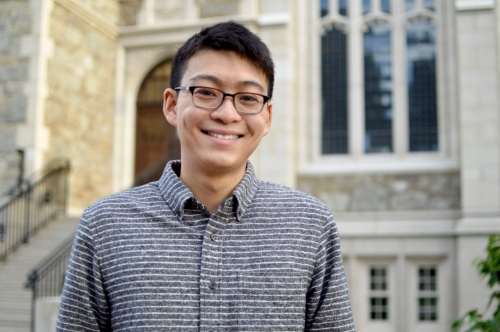
Jesse Mu Awarded NSF GRFP Fellowship
Boston College alumnus Jesse Mu '17 was recently awarded a National Science Foundation GRFP (Graduate Research Fellowship Program) fellowship. “It’s a national competition,” says Mu. “About 12,000 people applied but only 2,000 fellowships were awarded.”
The five-year NSF fellowship funds over three years. For each year, the school receives a $12,000 per year payment towards the cost of tuition, and the fellow receives a $34,000 per year living stipend. Mu says there are also additional opportunities available, like supercomputing time and opportunities to do research abroad.
“After finishing up my master's degree in CS at Cambridge in June (from the Churchill Scholarship), I'll be starting my CS PhD at Stanford this Fall 2018, supported by the NSF GRFP. I'll be working on natural language processing, psycholinguistics, and machine learning.”
More information about the GRFP can be found at: https://www.nsf.gov/news/news_summ.jsp?cntn_id=245024&org=NSF&from=news

Prud'hommeaux Joins Faculty
Dr. Emily Prud'hommeaux joins the department this semester as a tenure-track Assistant Professor. She was previously an Assistant Professor at the Rochester Institute of Technology where she co-founded the Computational Linguistics and Speech Processing Lab.
Prud'hommeaux's research focuses on applications of natural language processing and speech signal processing in the medical domain, particularly for identifying linguistic markers of neurological disorders such as autism and dementia. She's also interested in word alignment, language modeling, and applications of NLP for education and accessibility. This semester she is teaching CSCI 339002 Topics: Natural Language Processing.

Computer Science Assistant Professor Lewis Tseng wins Best Paper Award at SSS 2017
Computer Science Assistant Professor Lewis Tseng has earned the Best Paper Award at the 19th International Symposium on Stabilization, Safety, and Security of Distributed Systems (SSS 2017), for his paper entitled An Improved Approximate Agreement Algorithm in the Presence of Mobile Byzantine Faults. SSS was held in Boston, Nov. 5-8, 2017.
The paper explores "the problem of reaching approximate consensus in synchronous point-to-point networks, where each pair of nodes is able to communicate with each other directly and reliably." It proposes "a novel technique of using 'confession' (a mechanism to allow other nodes to ignore past behavior) and a variant of reliable broadcast to improve the fault-tolerance level."
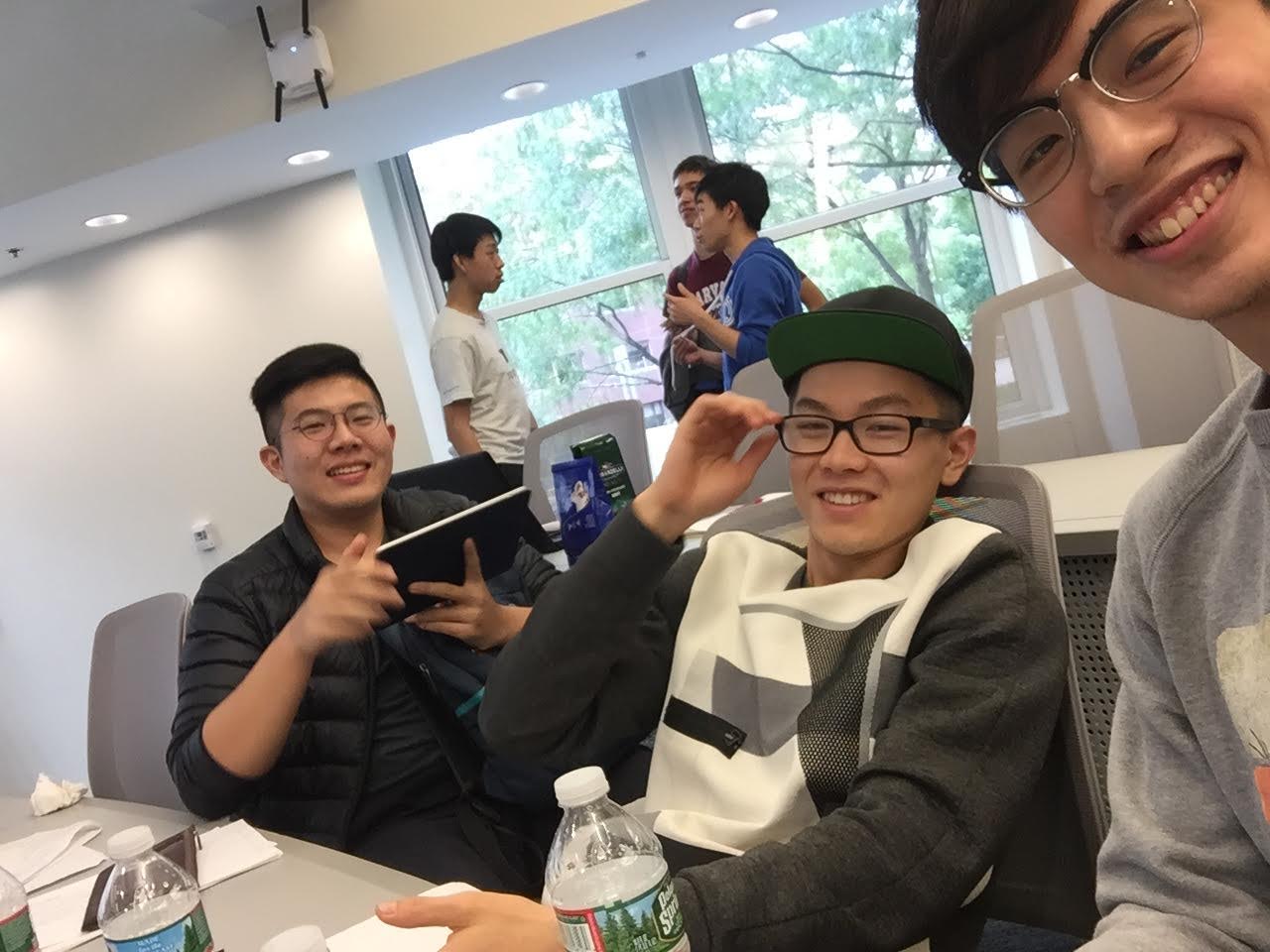
BC CS students advance to regional finals in ACM Programming Competition
Computer Science students from Boston College competed in the ACM Boston Preliminary (BOSPRE 2017) Programming Contest on October 14 at the Massachusetts Institute of Technology. BC teams “BC3” “BC2” and “BC1” finished 8th, 9th & 16th (respectively) out of 30 teams from 15 different schools competing in this year’s event.
Team BC3 (Xin Xiao, Wang Shikun, and Zhao Yajie) will go on and compete in the Northeast Regional Finals. According to Prof. Robert Muller, "It marks three consecutive years a BC team has advanced to the finals."
Calculating clock skew, determining permutations of Gmail email addresses, probabilities using a “wheel of fortune” in a fantasy village—even calculating an ultra-slow metabolism for a “galactic space traveler” were among the problem sets the teams faced.
“The problems were all challenging. We learned how to model complex problems with basic data structures and algorithms from class,” remarked Shikun (Jason) Wang. “We also learned how to collaborate with others.”
Congratulations to the nine Boston College students who participated.
Shown here (L-R): Xiao Xin ('18), Yajie (Angus) Zhao ('18) and Shikun (Jason) Wang ('18), photo courtesy Shikun Wang; not pictured: Vlad Chilom, Sazan Dauti, Chris Chiang, Minghao Liu, Zixuan Wu, Zhangyang Wei, Baichuan Guo.
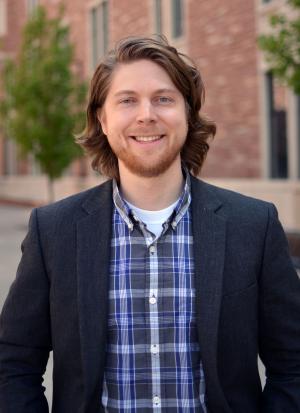
Daniel Szafir (CS '10) Named to Forbes Magazine's "30 Under 30" in Science
Szafir's research sounds almost like science fiction. It's focused on human-robot interaction and human-computer interaction. [more]
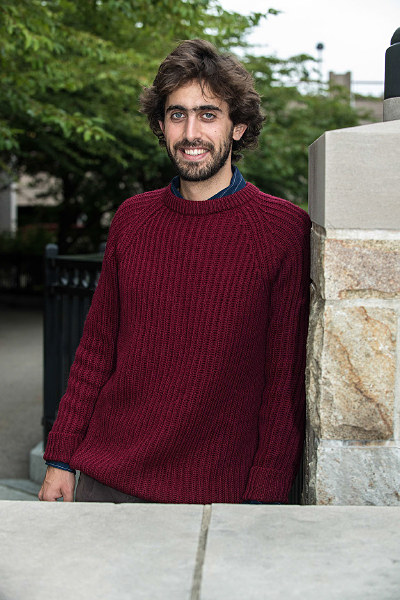
Computer Science Assistant Professor Jose Bento and collaborators awarded $1.6 million Big Data research grant from the National Science Foundation
BC Computer Science Assistant Professor Jose Bento has been awarded a grant from the National Science Foundation's Big Data program, for collaborative research to be performed with colleagues Stratis Ioannidis and Tina Eliassi-Rad of Northeastern University in 2017-2021. The total grant amount across the two participating institutions is $1.6 million, with nearly $600,000 for Prof. Bento's portion at Boston College.
Representations of real-world phenomena as graphs (a.k.a. networks) are ubiquitous, ranging from social and information networks, to technological, biological, chemical, and brain networks. Many graph mining tasks -- including clustering, anomaly detection, nearest neighbor, similarity search, pattern recognition, and transfer learning -- require a distance measure between graphs to be computed efficiently. This project studies a formal mathematical foundation covering a family of graph distances that overcome the limitations of currently used distance measures, focusing on real-world applications in biology and social network analysis. It also provides a universal methodology for parallelizing the computation of graph distance metrics within this family over massive graphs with millions of nodes, and scaling it over cloud computing resources.
Additional information is available from the National Science Foundation:
https://nsf.gov/awardsearch/showAward?AWD_ID=1741129
and
https://www.nsf.gov/awardsearch/showAward?AWD_ID=1741197
The Computer Science Department welcomes two new core faculty
Dr. Lewis Tseng joins the department as a tenure-track Assistant Professor this fall. He comes to Boston College after work as a researcher at Toyota InfoTechnology Center, following his Ph.D. in Computer Science at the University of Illinois at Urbana-Champaign, where he previously completed dual B.S. degrees in Computer Science and in Economics. Dr. Tseng does research in the field of distributed computing, including aspects related to fault-tolerance and security. He will be offering an advanced undergraduate course on distributed computing systems, CSCI 3359, this fall.
Dr. Vahid Montazerhodjat, who was a Visiting Assistant Professor in our department last year, returns in his new role as Assistant Professor of the Practice. He holds Ph.D. and S.M. degrees in Electrical Engineering and Computer Science from MIT, and a B.Sc. in Electrical Engineering from Sharif University of Technology. Dr. Montazerhodjat will be teaching Computer Science I, CSCI 1101, this fall. He has research interests in statistical inference and data analytics with a focus on the bio-pharmaceutical industry.
The department also welcomes two visiting faculty members for the 2017-2018 academic year:
Dr. Ziyuan Meng, who holds a Ph.D. in Computer Science from Florida International University, will be a Visiting Assistant Professor.
Ms. Anjum Biswas, M.S. in Information and Computer Science from the University of California, Irvine, will be a Visiting Lecturer.
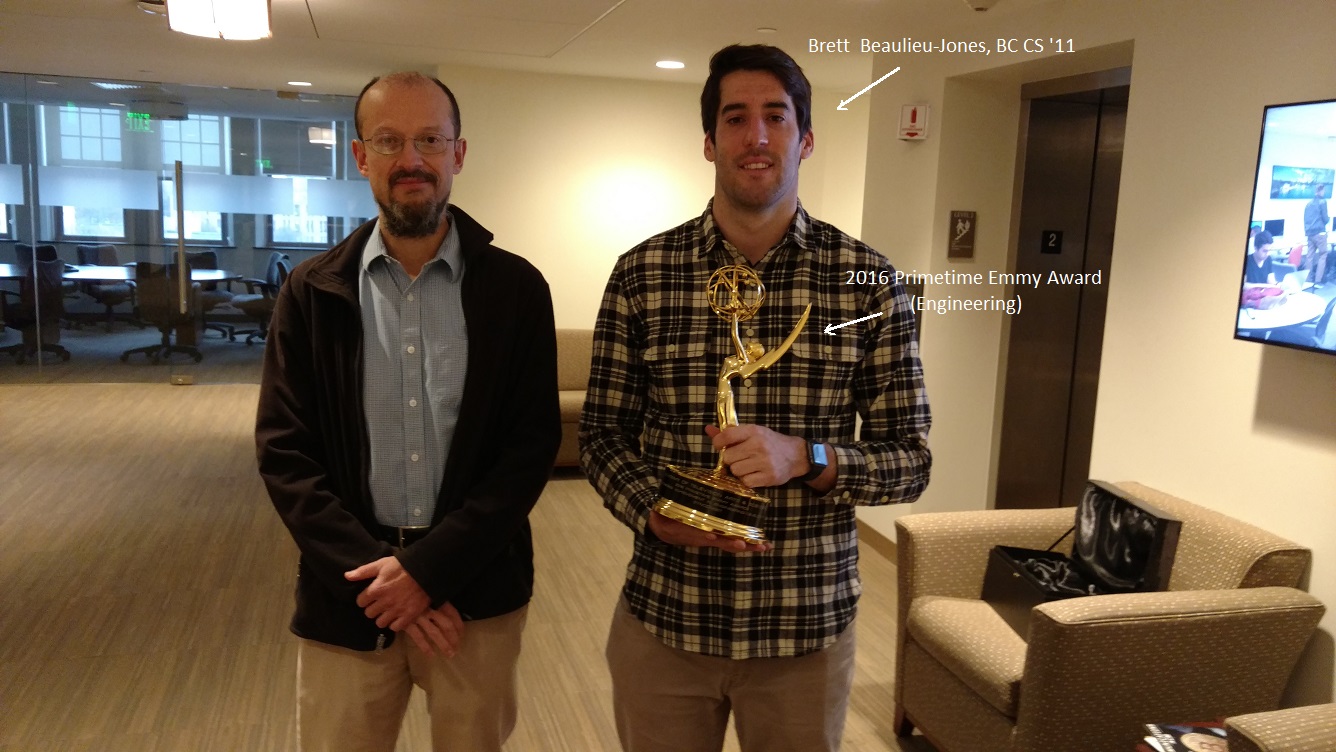
Emmy Winning-BC Alum Visits CS Department
Brett Beaulieu-Jones (BC CS '11) visited the CS department and gave a guest lecture in Prof. Alvarez's machine learning course. Brett is a PhD candidate at the University of Pennsylvania, where he is doing work on machine learning techniques in computational biology.
Brett, together with fellow BC alumni Jeff Impey and Alexander LoVerde, founded SyncOnSet, a company that provides software to manage the production process in television and film. Their product has attained wide adoption across the TV and film industry. The Television Academy awarded SyncOnSet an (Engineering) Emmy in Sept. 2016 for development and innovation in broadcast technology.
View Emmy List
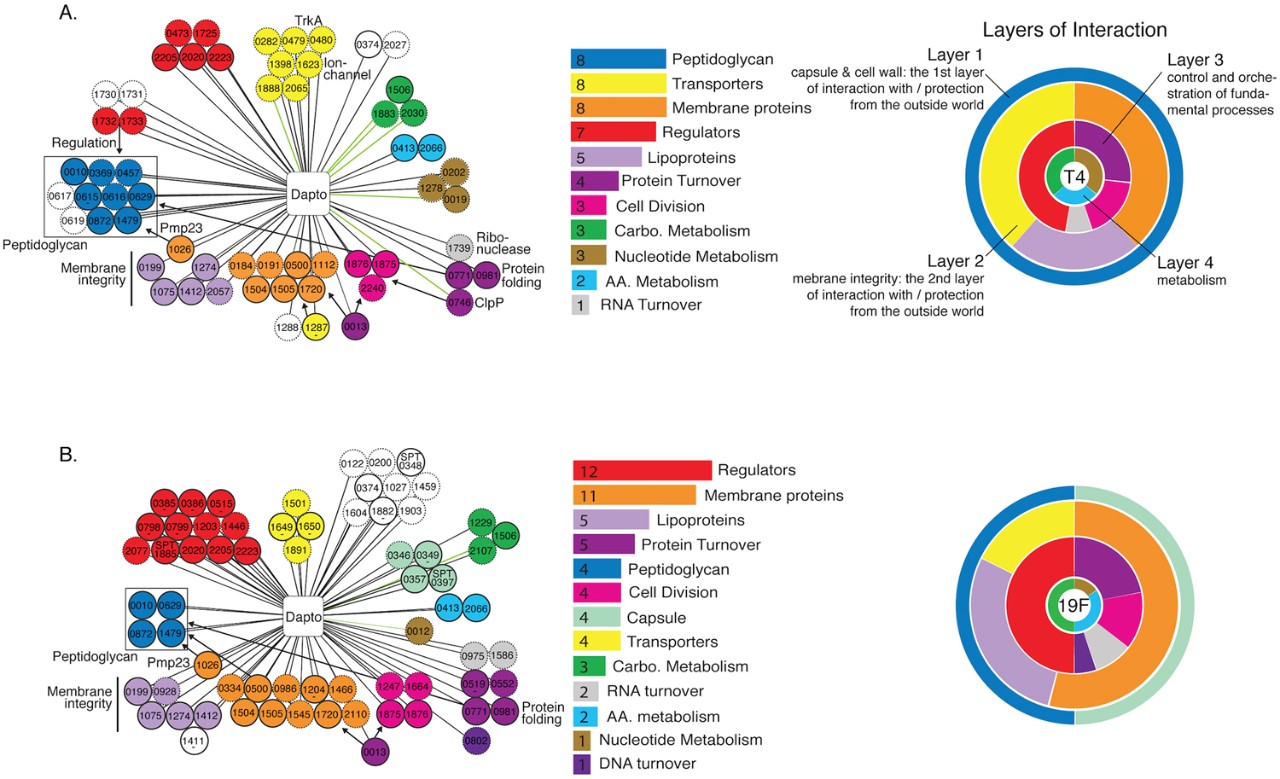
BC Scientists Explore Antibiotic Resistance
Using a novel gene sequencing technique, Boston College Professor of Biology Tim van Opijnen and Assistant Professor of Computer Science José Bento found that two strains of the same bacteria combat a common antibiotic with mostly different sets of genes and their underlying genetic networks, pointing to the need to develop antibiotic-sensitivity profiles for different bacterial species and the strains within them. (BC News) Read the article about this gene sequencing technique.
CS Majors Receive Academic Awards
Four CS students have been recognized with prestigious academic awards from the university.
Dean's Scholar: Minghao Liu
Minghao Liu is a native of Tianjin, China. He was a math and science enthusiast in high school. "Programming contest was my favorite extra-curricular activity back then, and it became my major immediately when I entered college," says Minghao. In his spare time, Minghao plays violin and participates in intramural soccer.
Sophomore Scholar: Kaimin Liu
Kaimin Liu is from Nanjing, China. She chose to major in Physics and CS because she's interested in science fiction and video games.
Sophomore Scholar: Marina Thetford
Marina Thetford was born and raised in small-town western Pennsylvania. When not coding, she enjoys hiking, singing and playing the piano.
Sophomore Scholar: Shikun Wang
Shikun (Jason) Wang hails from Guangzhou, China. He is interested in the study of artificial intelligence and data analysis. Jason also love sports, and plays football, basketball, fencing, badminton, and table tennis.
About Dean’s Scholars
Each year a select group of the brightest young scholars in the junior class are honored by the Dean of the Morrissey College of Arts and Sciences as Dean’s Scholars. They are selected on the basis of their overall academic performance, the recommendations from their departmental faculty, their co-curricular initiatives, and the sense of purpose with which they approach their future. Thus, the outstanding students listed below are true scholars in the fullest sense of the word.
About Sophomore Scholars
The Dean of the Morrissey College of Arts and Sciences each year honors the most academically distinguished members of the sophomore class as Sophomore Scholars. The young scholars have achieved an academic ranking that places them in the top four to five percent of their class of more than 1552 and have also received the recognition and nomination of their major departments. The Sophomore Scholar’s award recognizes their current distinction and their promise for the future.
Computer Science major Jesse Mu awarded Churchill Scholarship
Jesse Mu, CS '17 has been awarded a Churchill Scholarship for Master's study at Cambridge University. The Churchill Scholarship is one of the most prestigious student awards in the sciences, mathematics, and engineering.
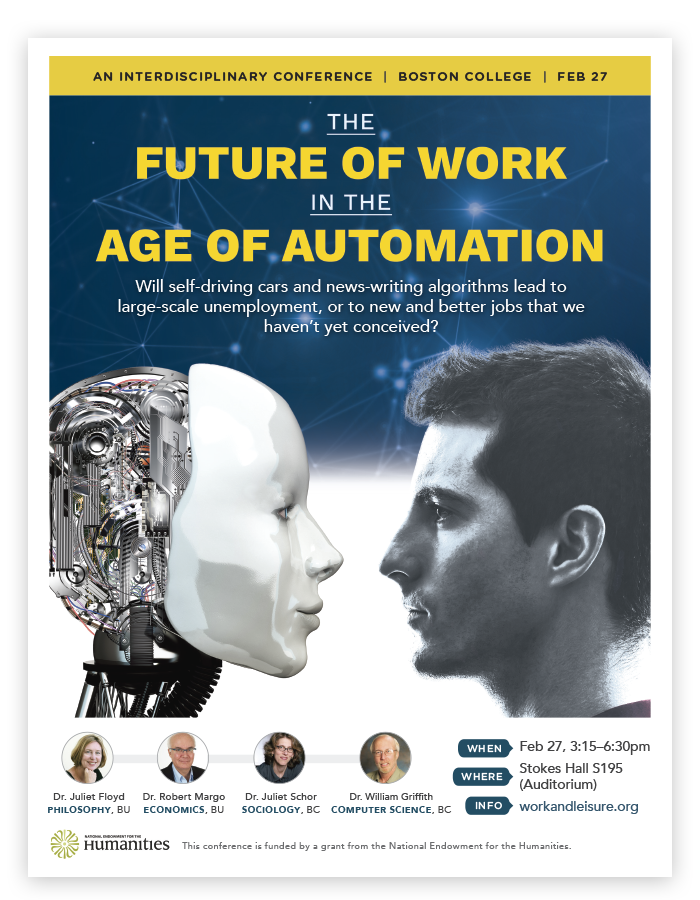
Computer Science Visiting Assistant Professor William Griffith to participate on panel about the Future of Work in the Age of Automation
Dr. William Griffith of the Boston College Computer Science Department will participate in a panel about the Future of Work in the Age of Automation on Monday, February 27 from 5:45-6:30 PM in Stokes Hall S195. The panel will form part of a conference that will examine this topic through the lenses of philosophy, economics, sociology, and computer science.
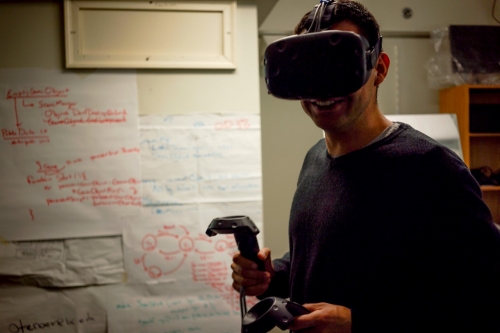
Computer Science Students Bring a Classic to Life in Virtual Reality
A unique digital humanities project known as Joycestick is utilizing a series of analytical and creative tools that will allow James Joyce enthusiasts to explore the author’s monumental tome, Ulysses.
nder the leadership of Joyce scholar and Boston College English Department Associate Professor of the Practice Joseph Nugent, “a diversely talented group of students behind JoyceStick are … ushering a classic into the age of virtual reality.” Students from Boston College, Northeastern University, and the Berklee College of Music are working alongside graduate students, professionals and Prof. Nugent to develop teams that work on sound, 3D modeling, text and visualizations, storyboarding, mapping and Geographic Information Systems, among other specialties.
Boston College Computer Science students Evan Otero, Drew Hoo, Emaad Ali, and Ryan Reede comprise the Virtual Reality (VR) development team, along with a Northeastern student, Matt Harty.
“VR is somewhat the ‘wild west,’” remarks Ryan Reede. “Although we can focus on writing code that handles gameplay and interaction instead of the complex graphics algorithms, there are a lot of bugs still in beta associated with VR since the medium is so new. This means that a lot of the work we do includes figuring out what code from open-source VR plug-ins does, then extending or modifying it to make it work better with our environment.”
Reede and his associates have developed a game where one can explore the different levels of a very accurate representation of the Martello Tower in Sandycove, Dublin--where Joyce lived for several years while writing Ulysses, and where the first two chapters of Ulysses take place. “It’s accurate to within 2 millimeters based on a laser scan,” Reede adds.
The VR development team uses Object-Oriented C# for their coding. “All of us agree that taking [the course] with [CS Department Associate Professor Ed] Sciore has been tremendously valuable as far as organizing and maintaining the code that powers the game.”
According to Joycestick’s Professor Nugent, the Joycestick project began last April as a proof-of-concept proposal. “To my delight, it’s proceeded further down the path than I would have imagined. Our horizons continue to expand.”
Nugent has high praise for Reede and the other students involved with the Joycestick project. “It has been such a delight working with them. Their level of commitment has been astonishing.”
To obtain more information about Project Joycestick, visit http://joycestick.com.
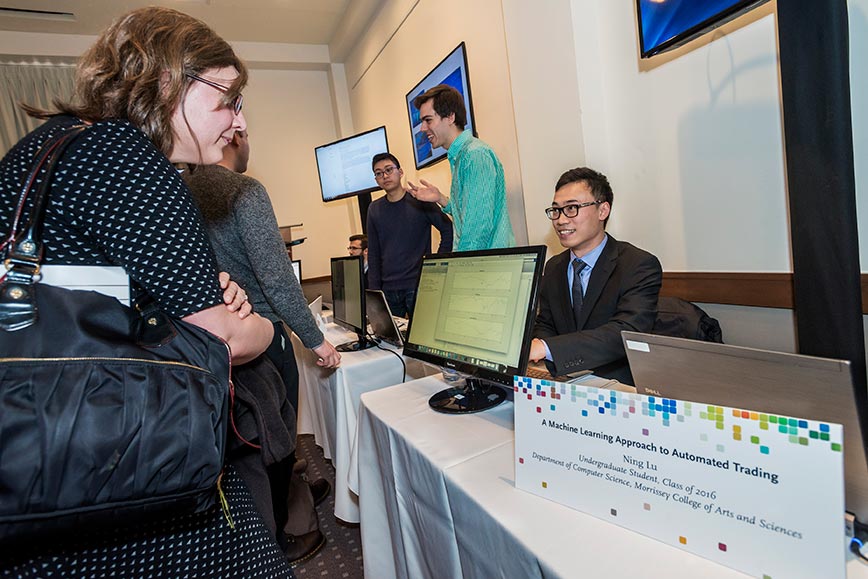
Big Data Symposium
Ten undergraduate independent research projects—launched in the departments of biology, biochemistry, classical studies, computer science, economics, finance, information systems, and physics—were displayed at the University’s daylong symposium on big data held March 16 in the Newton and Brighton Rooms
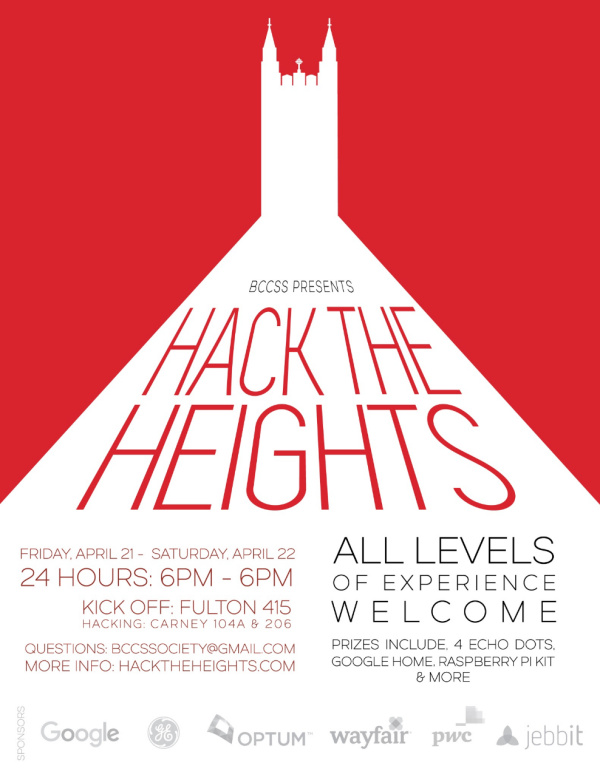
Hack the Heights
The Boston College Computer Science Society will host a 24-hour Hack The Heights event from Friday, April 21 at 6 PM until April 22 at 6 PM.